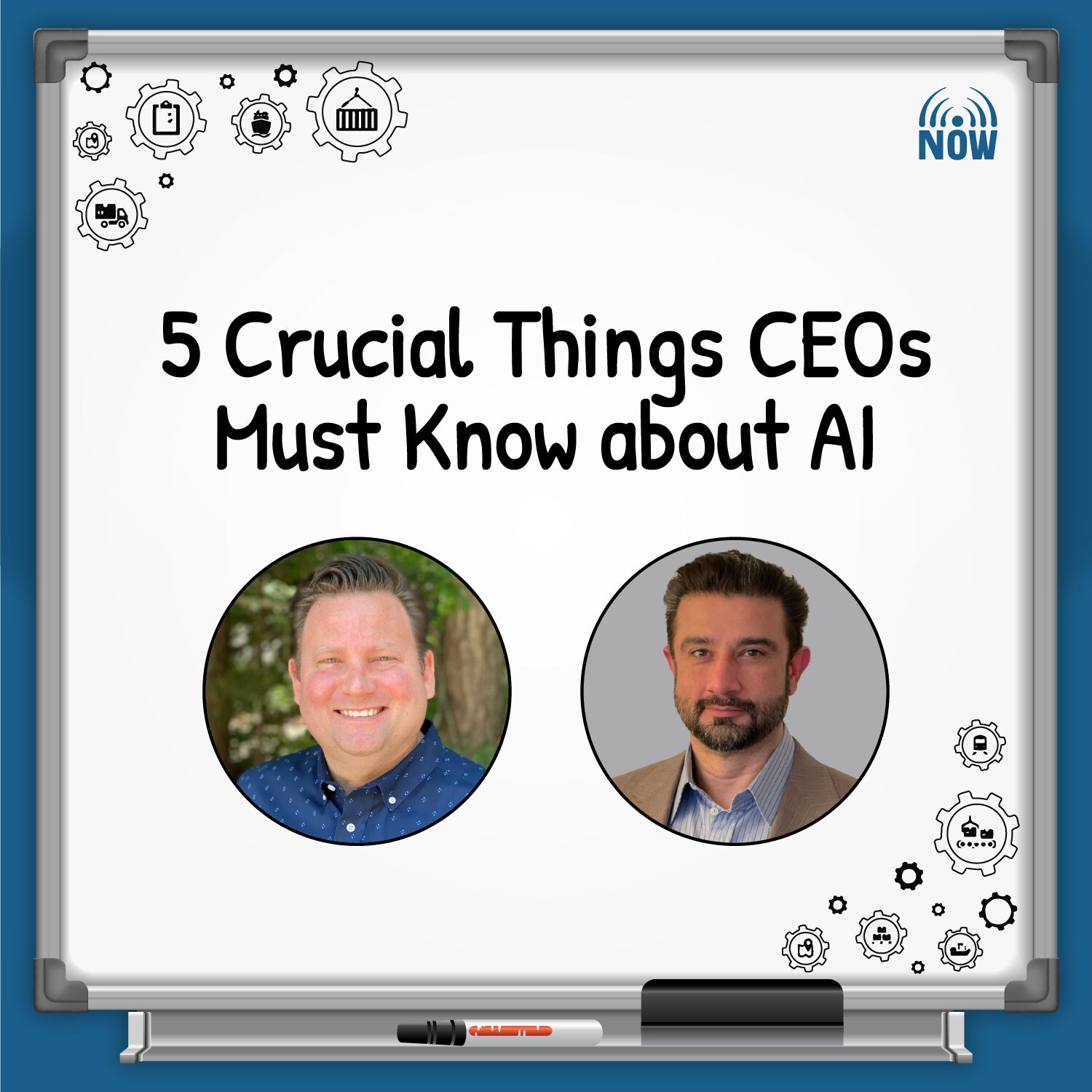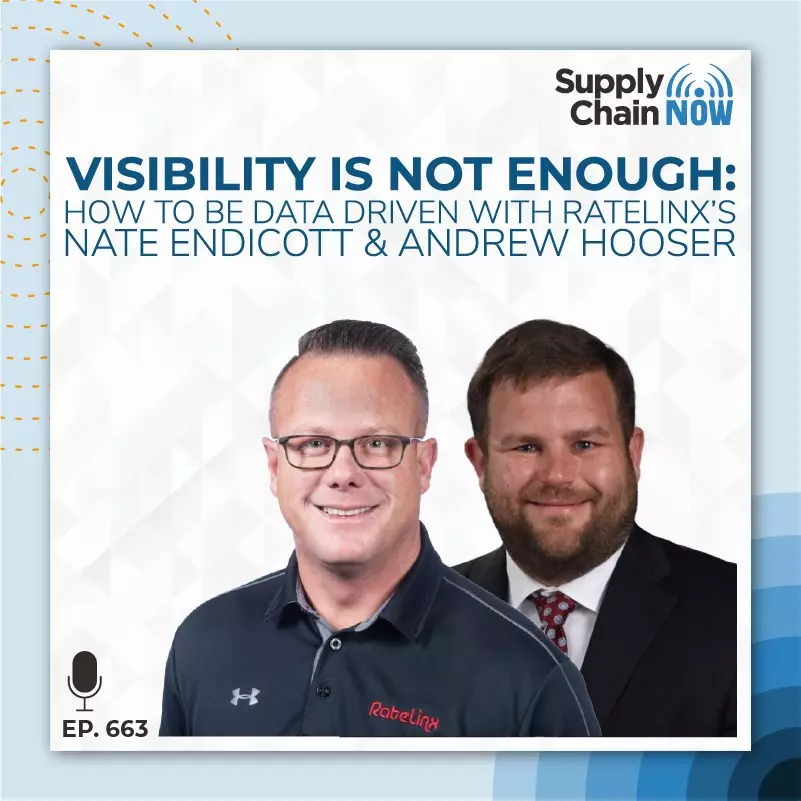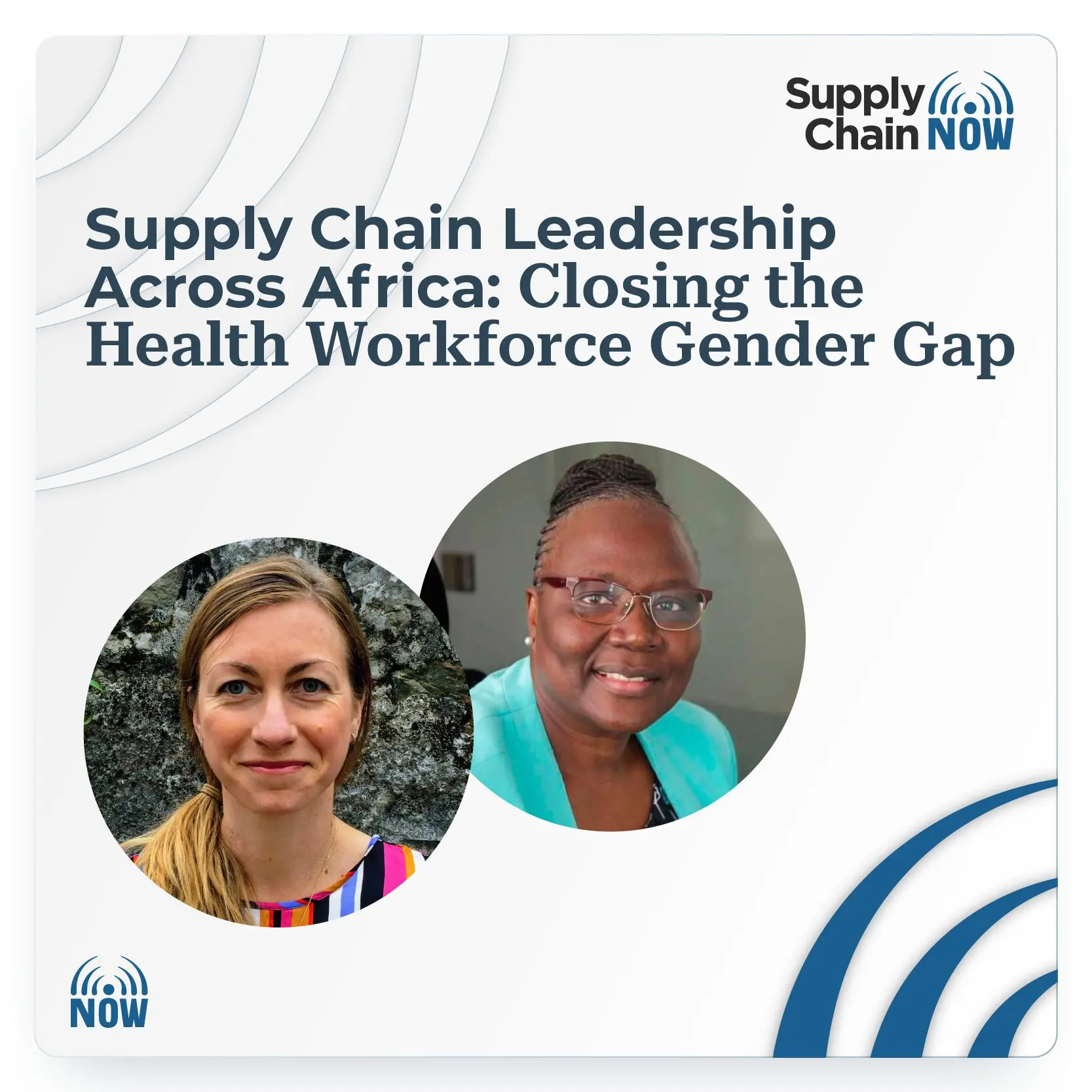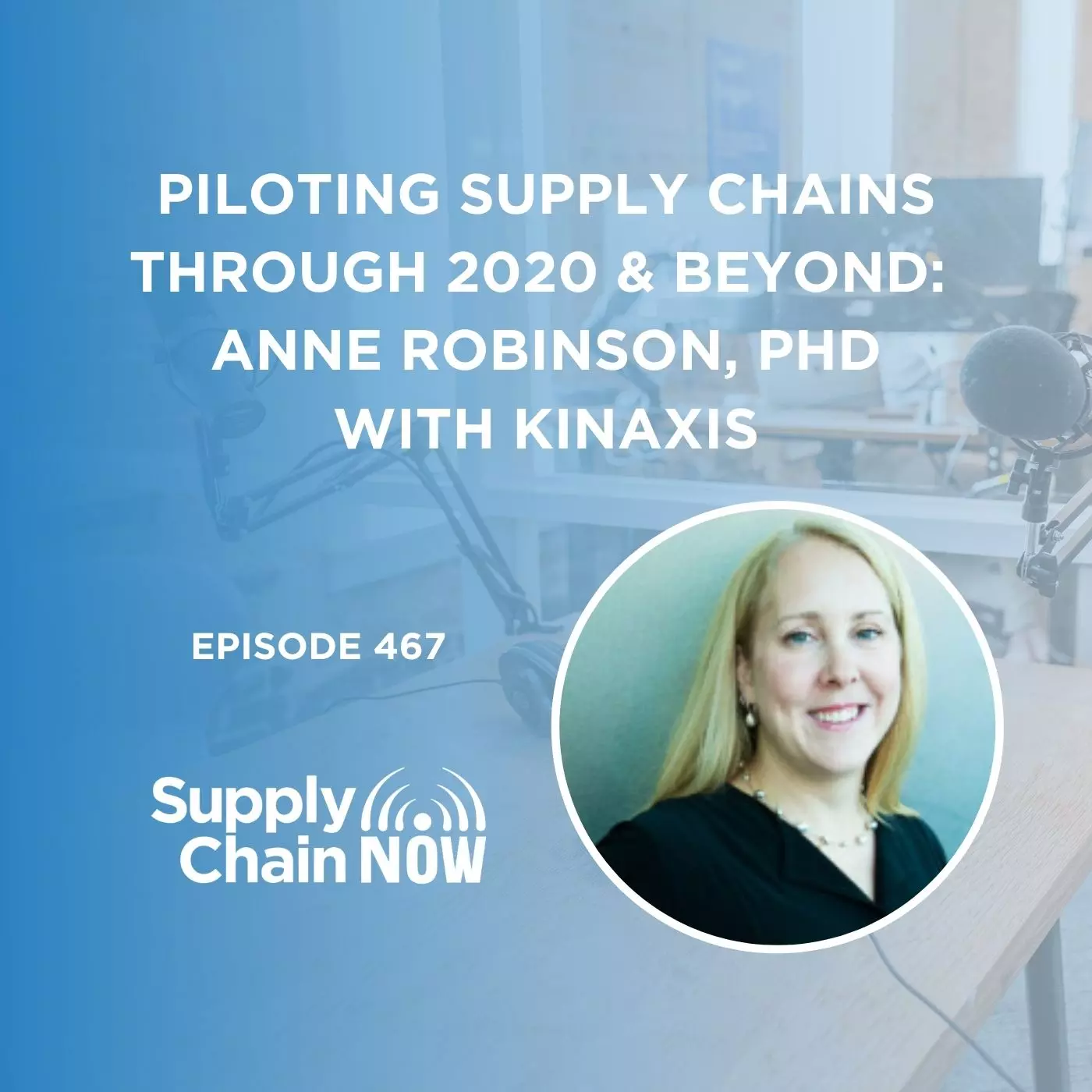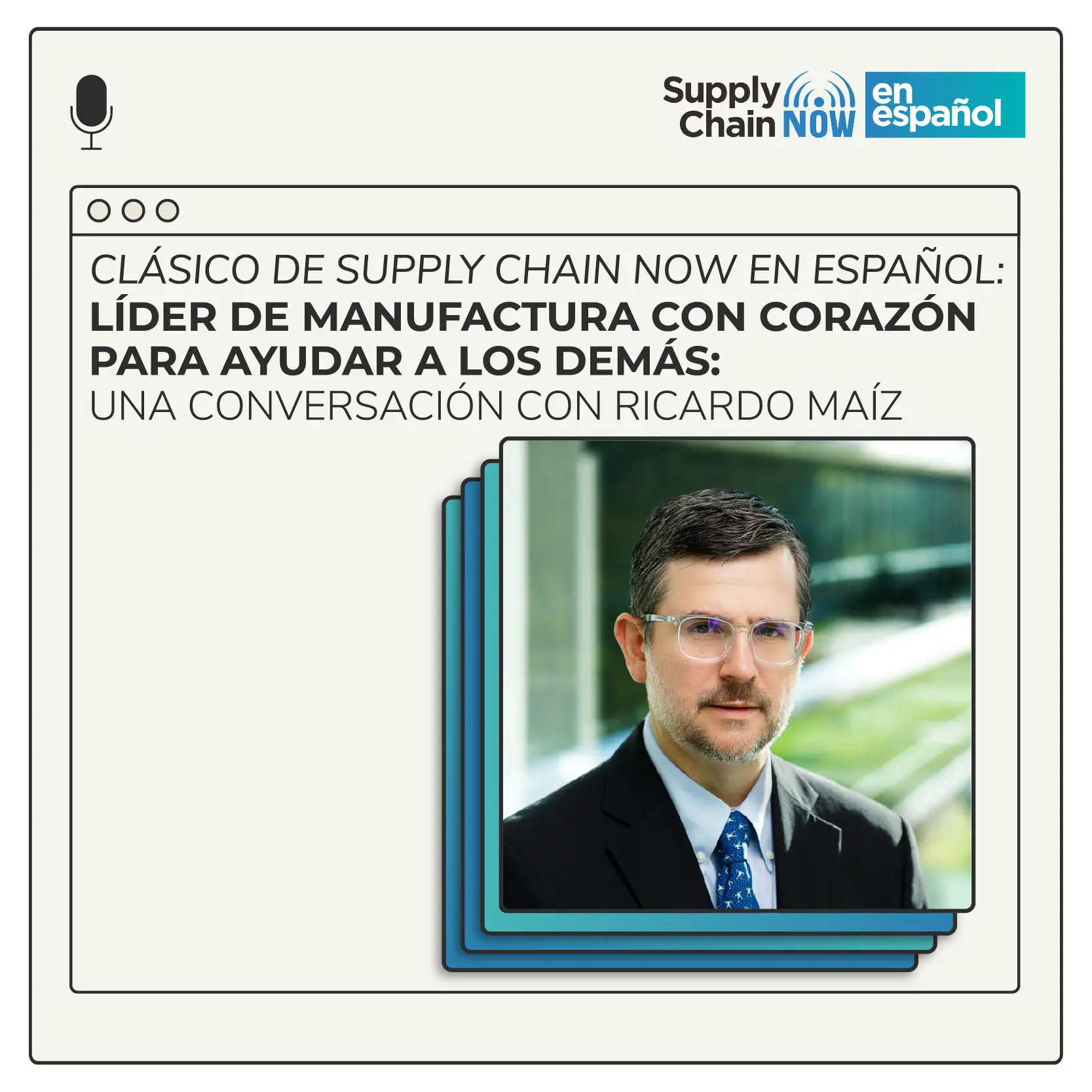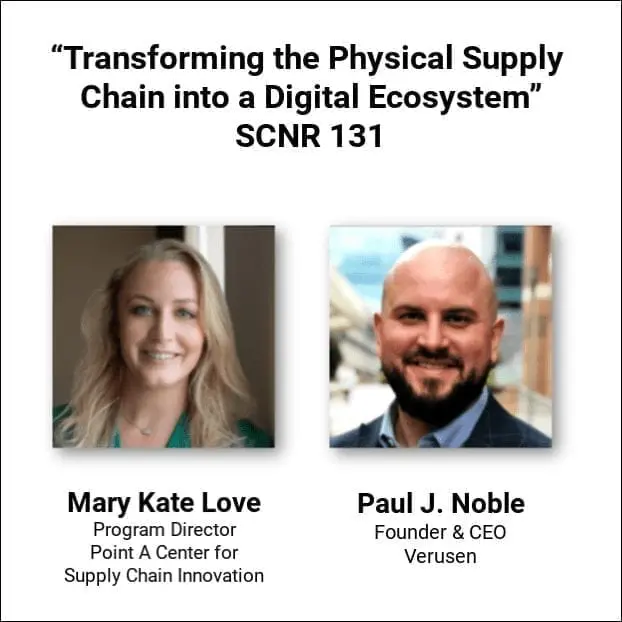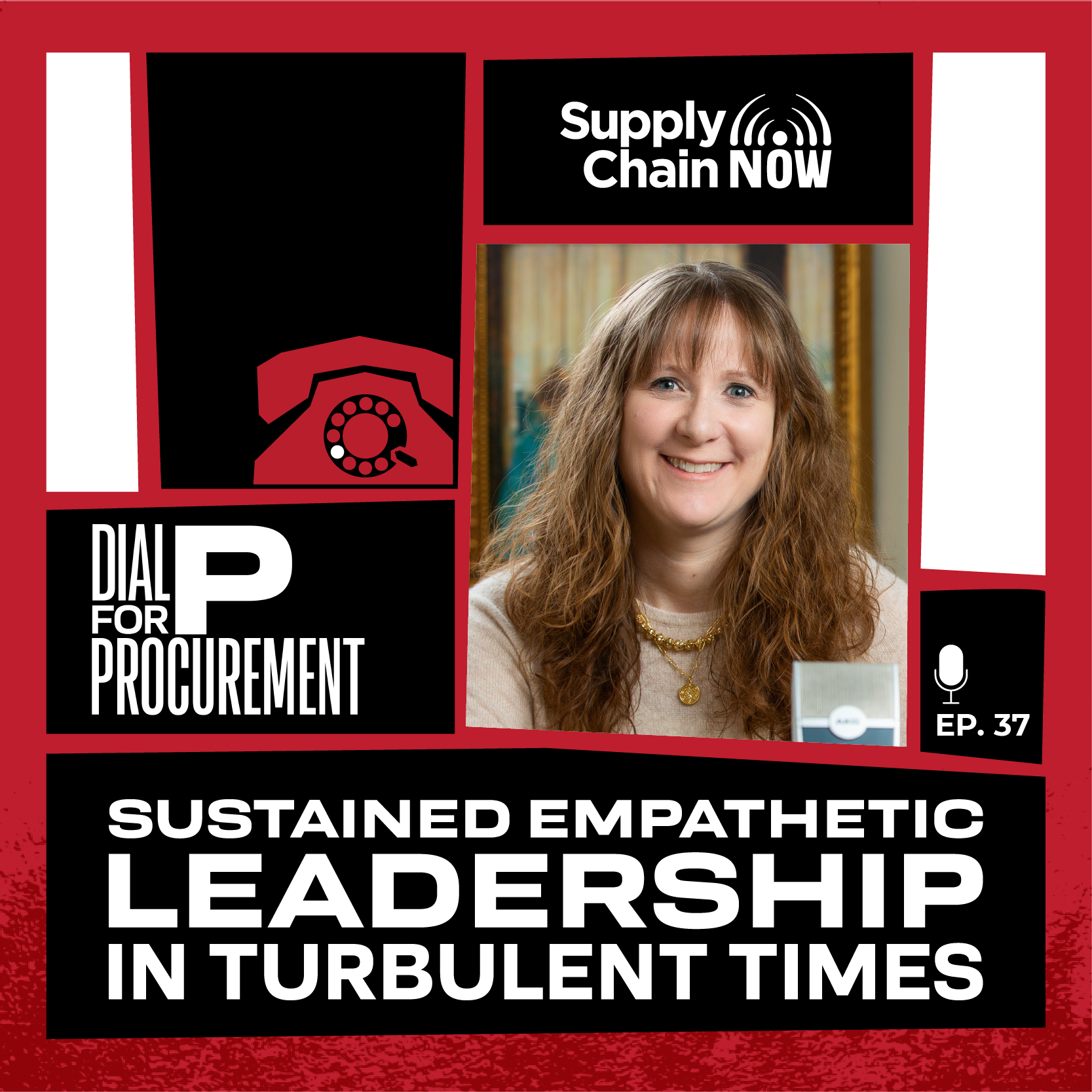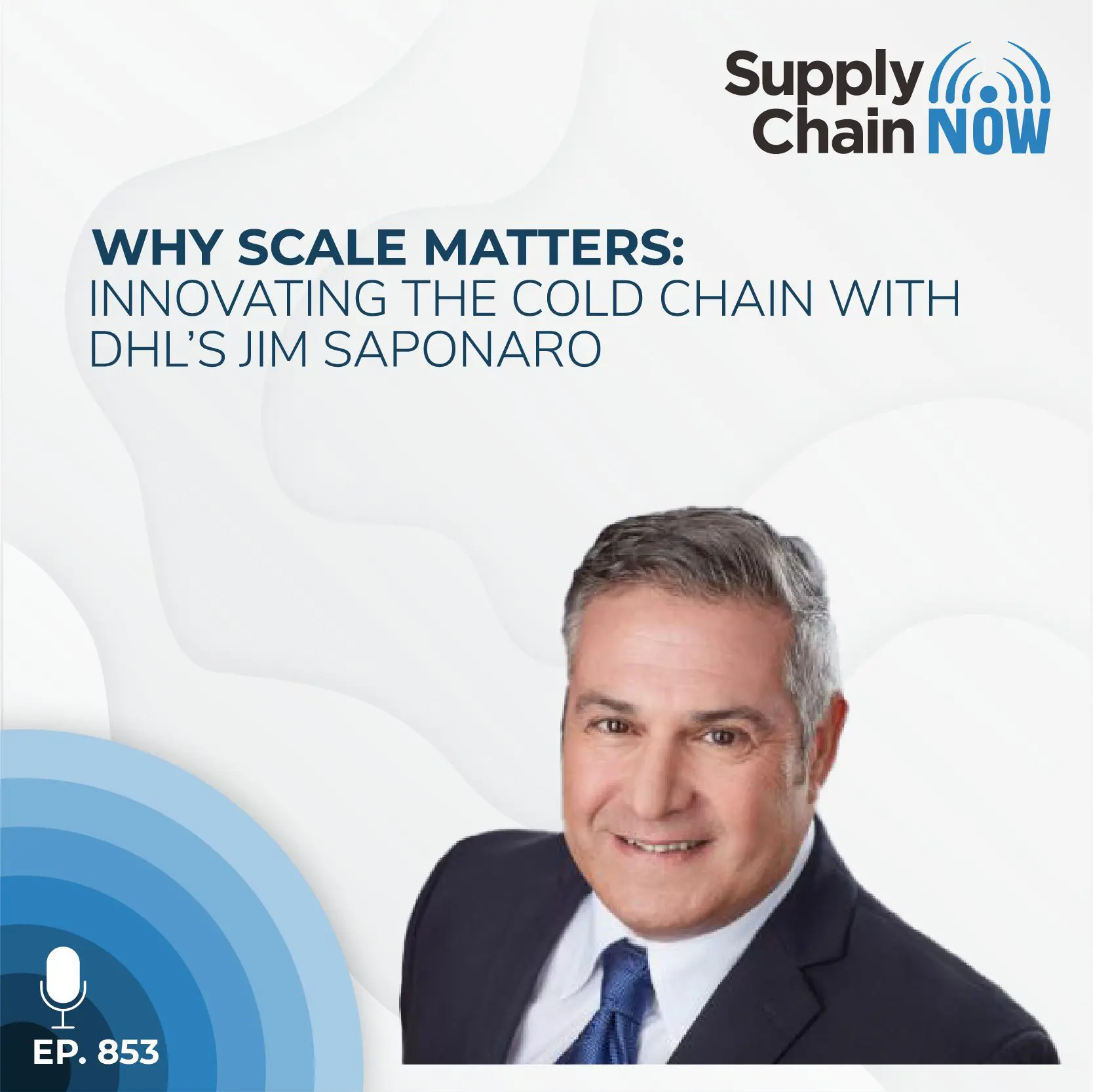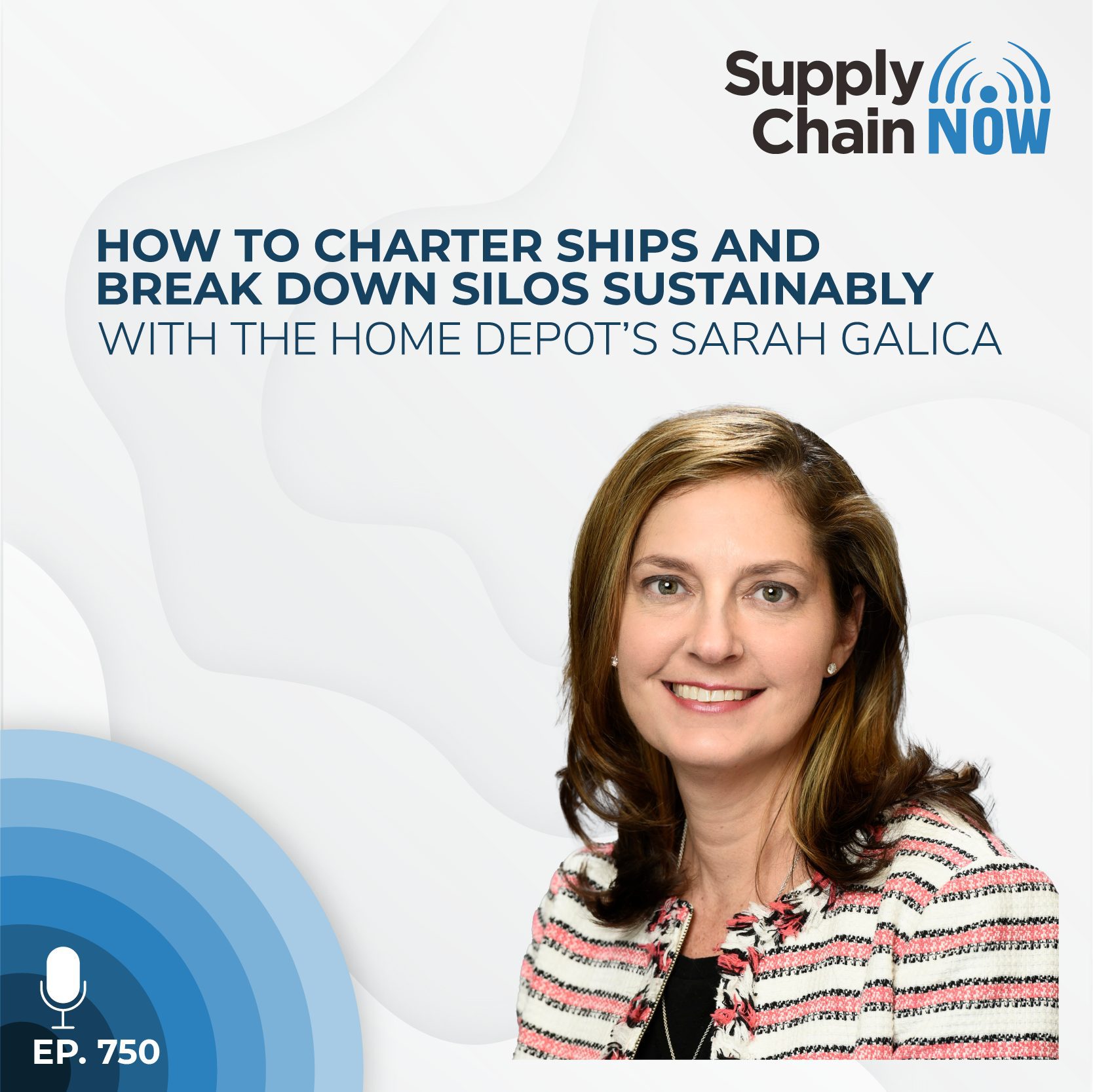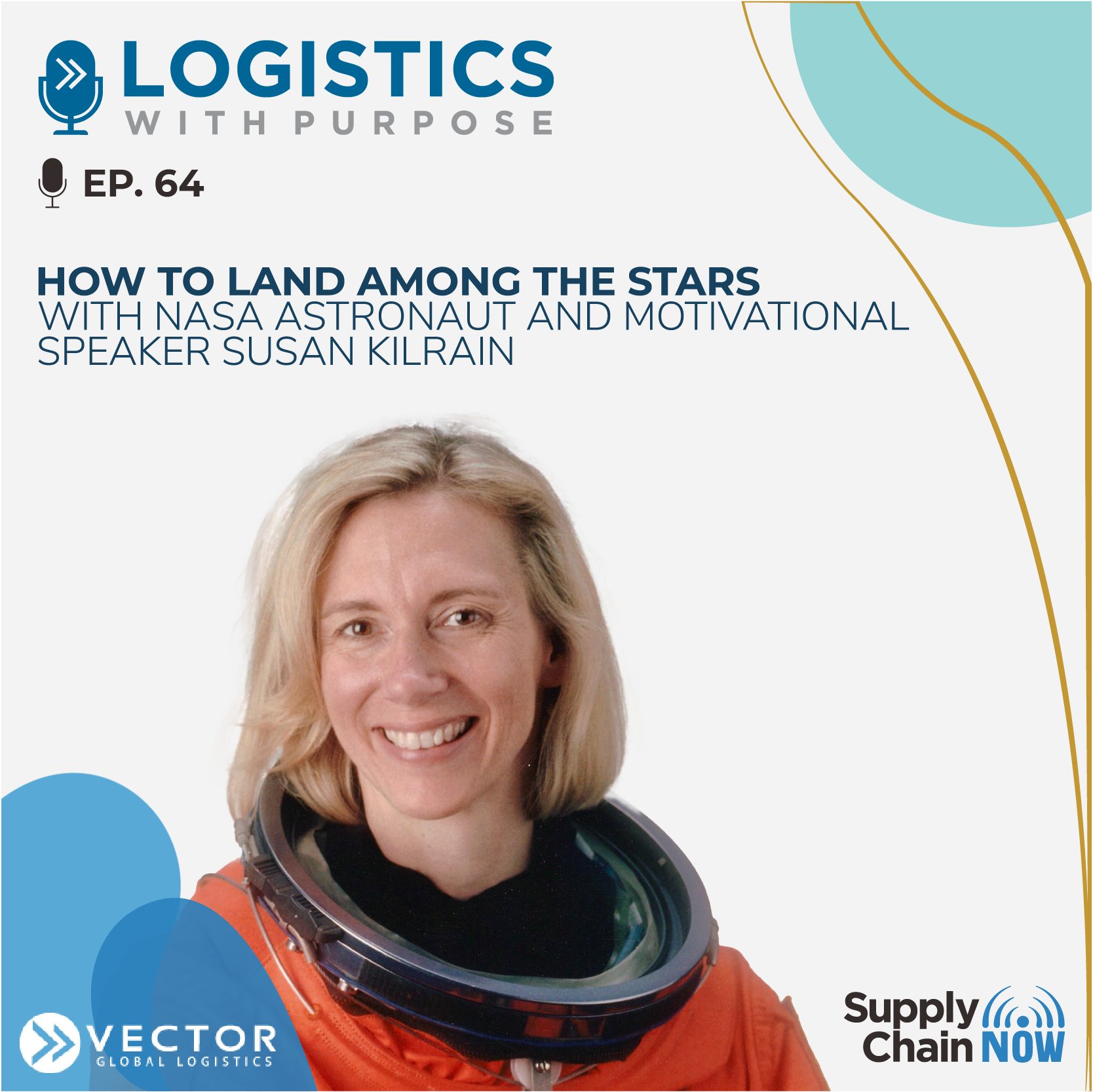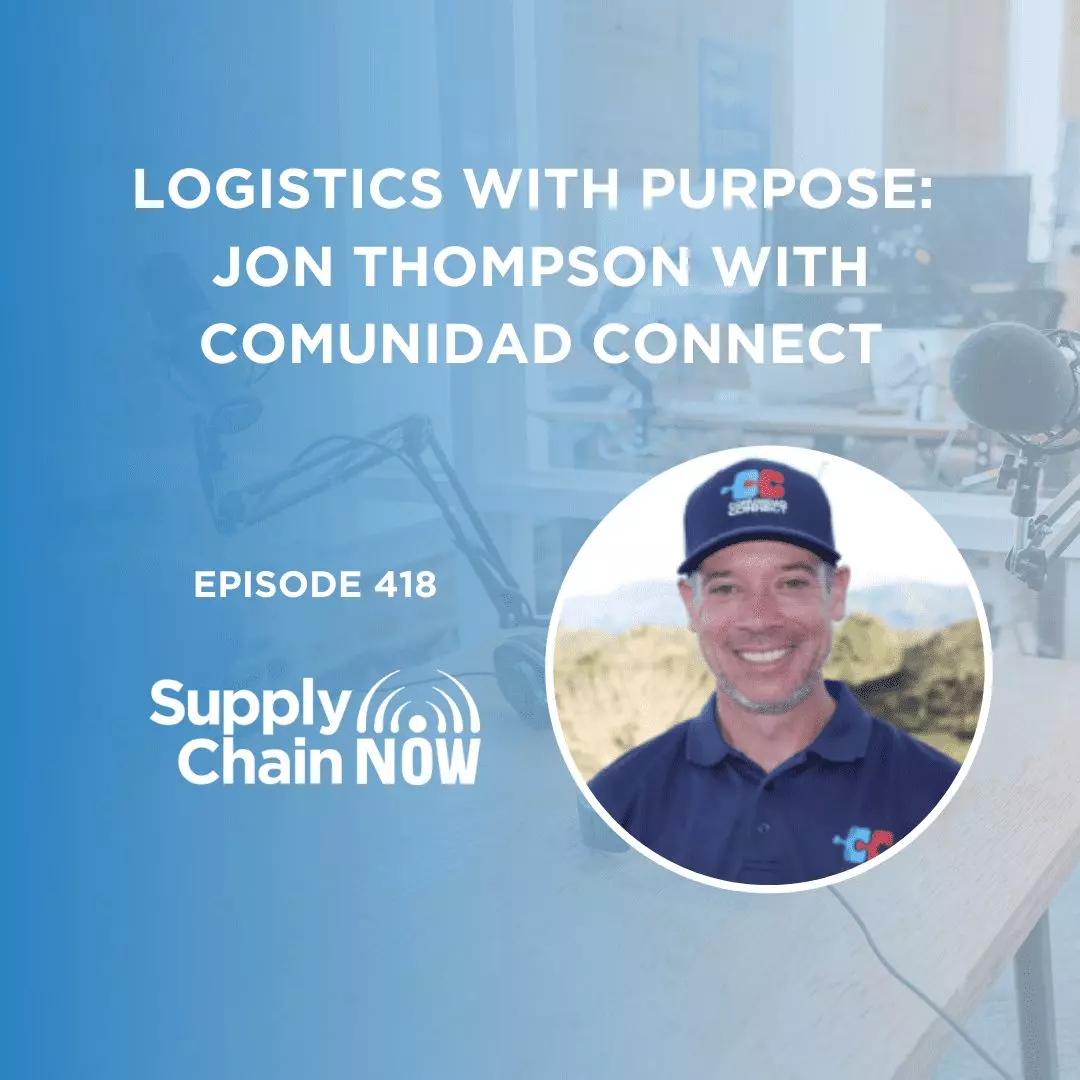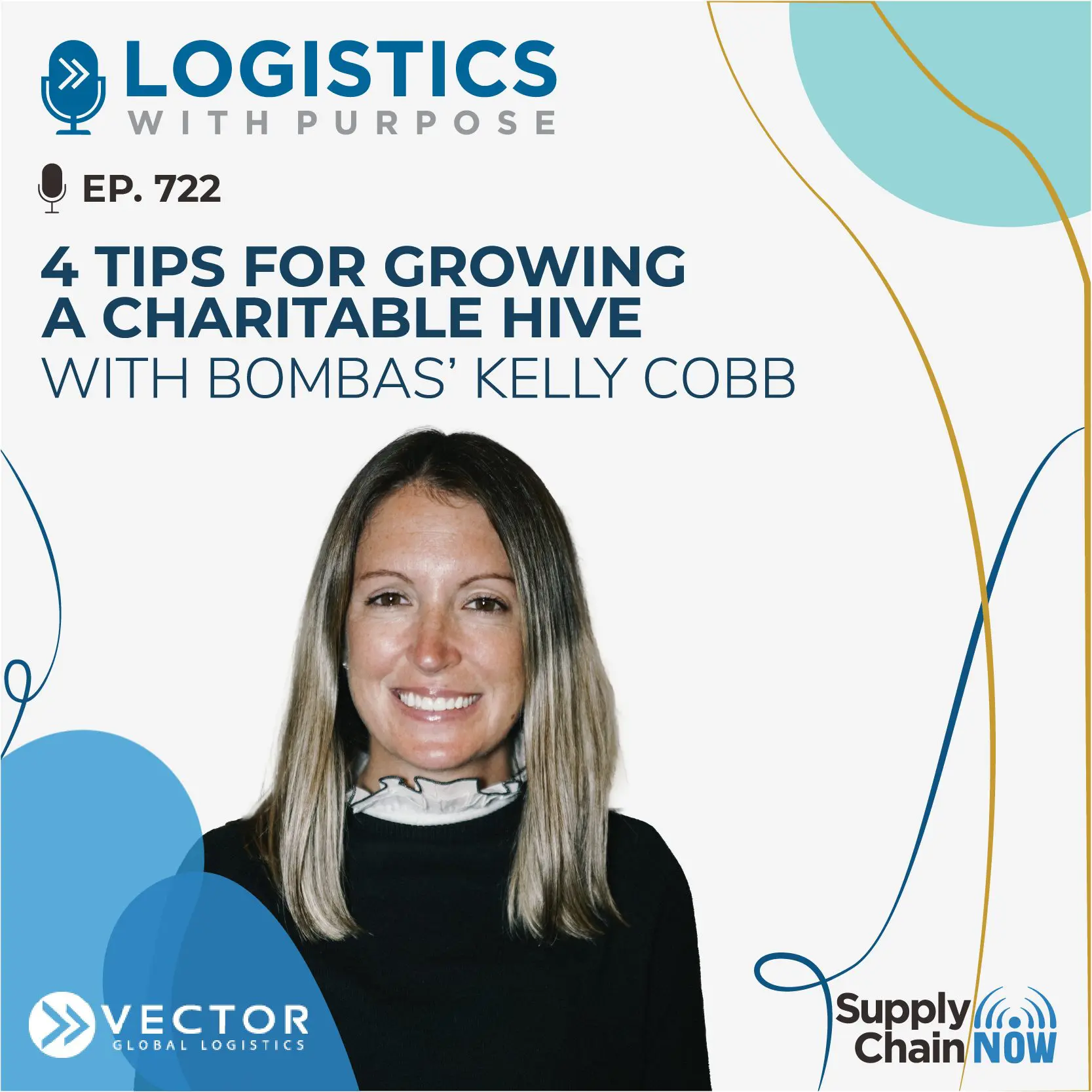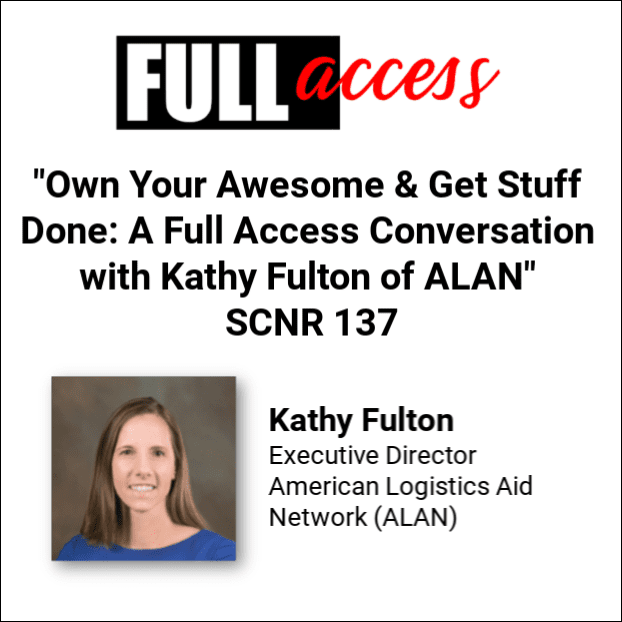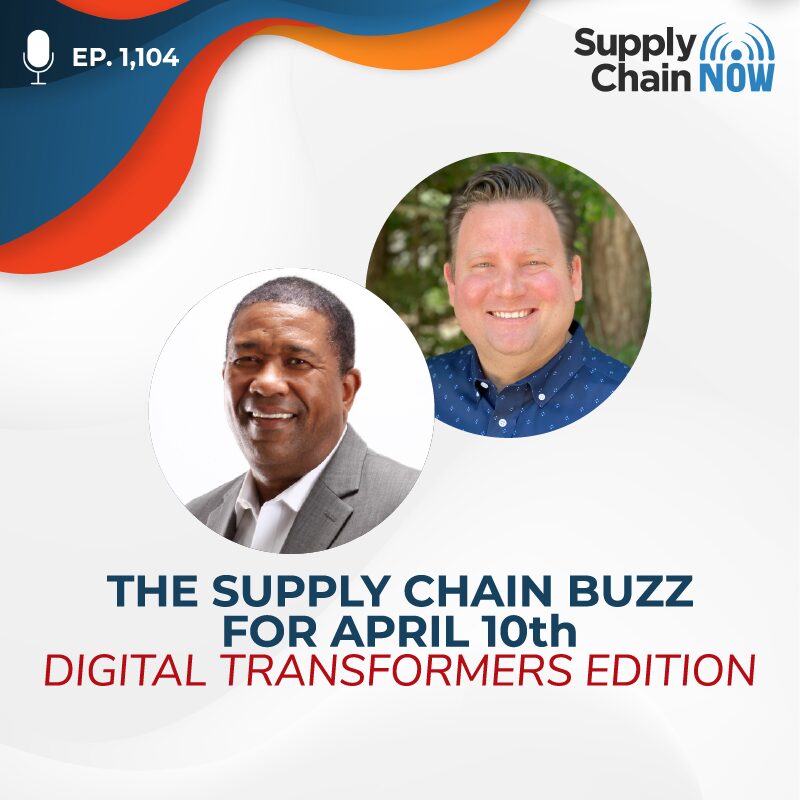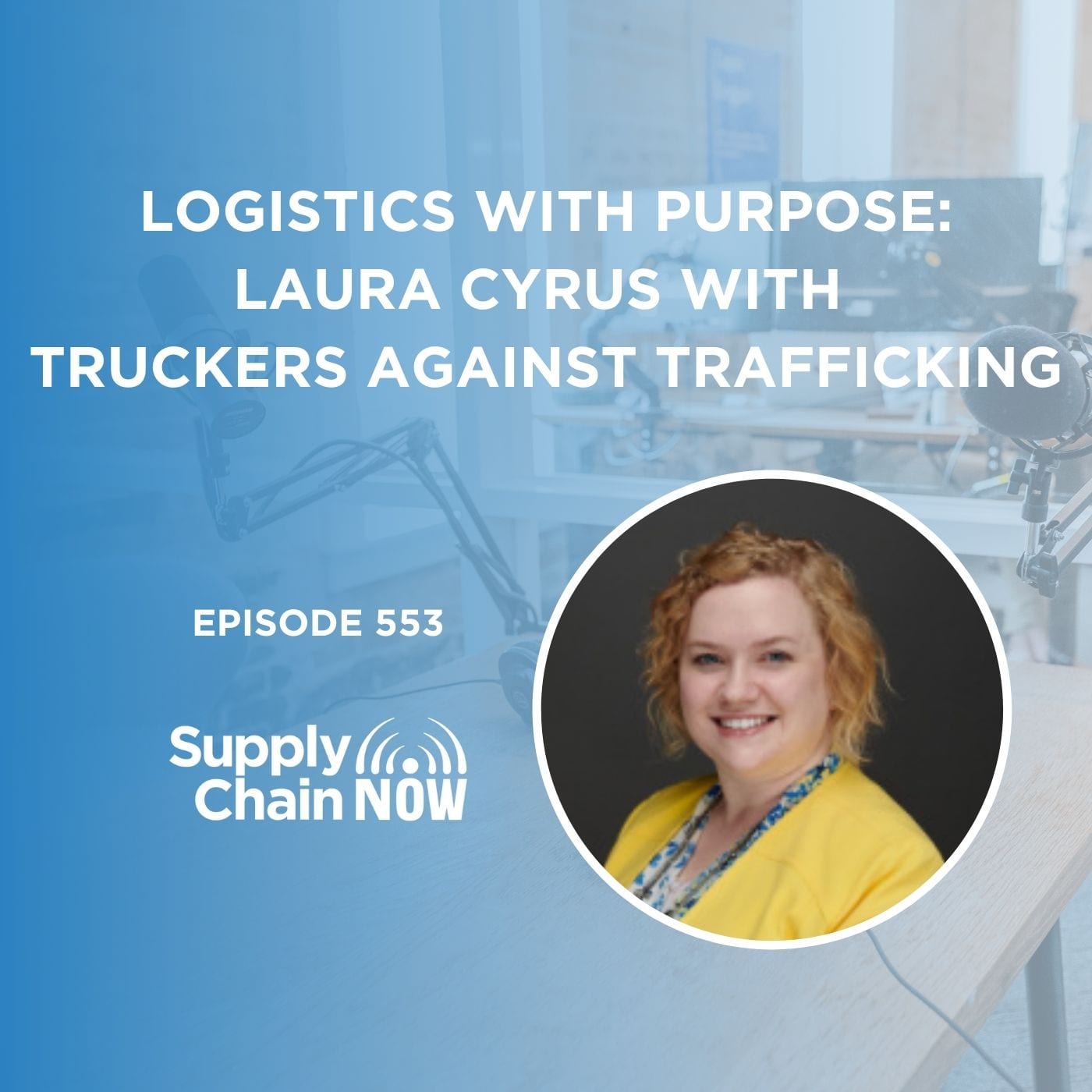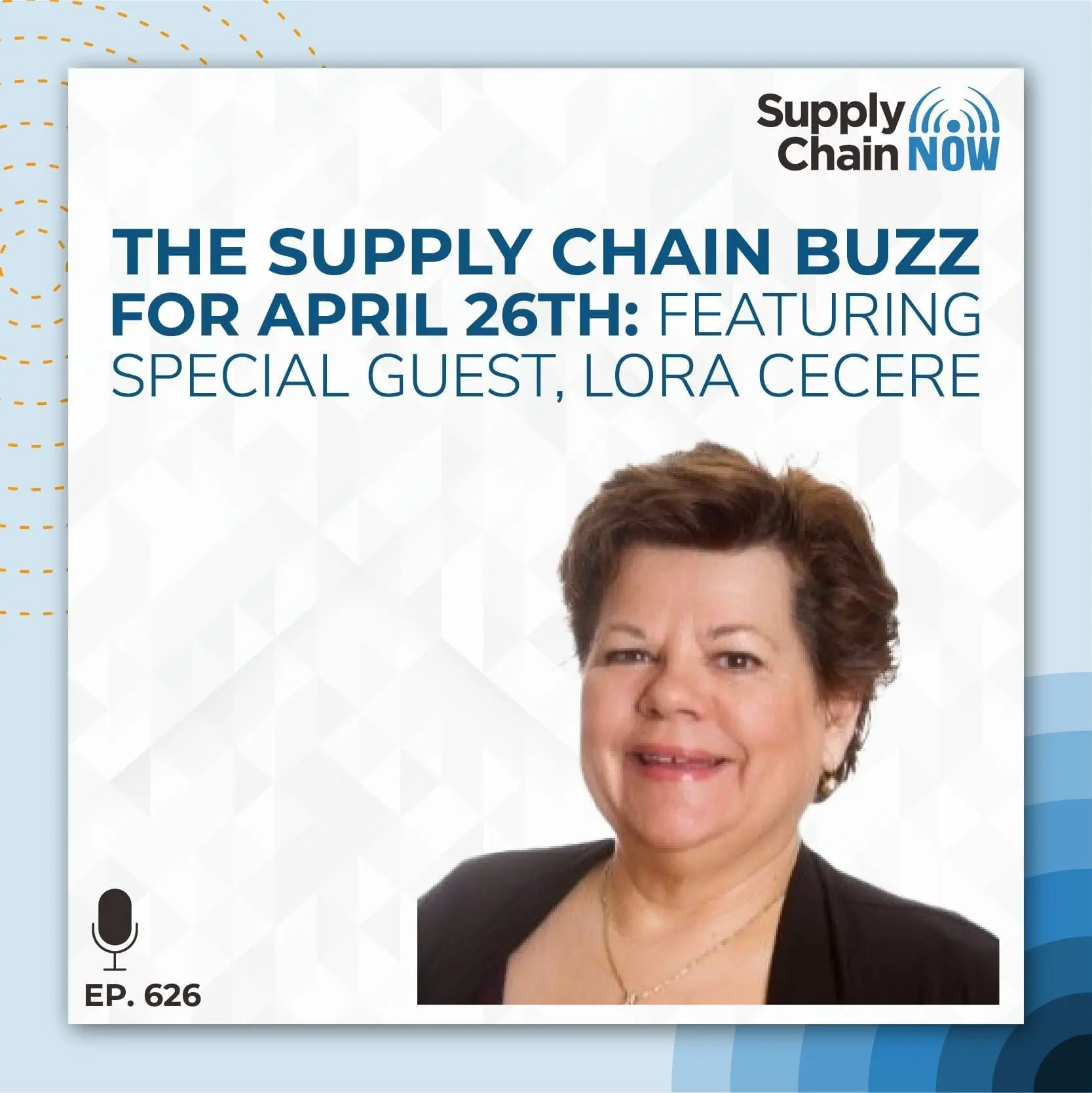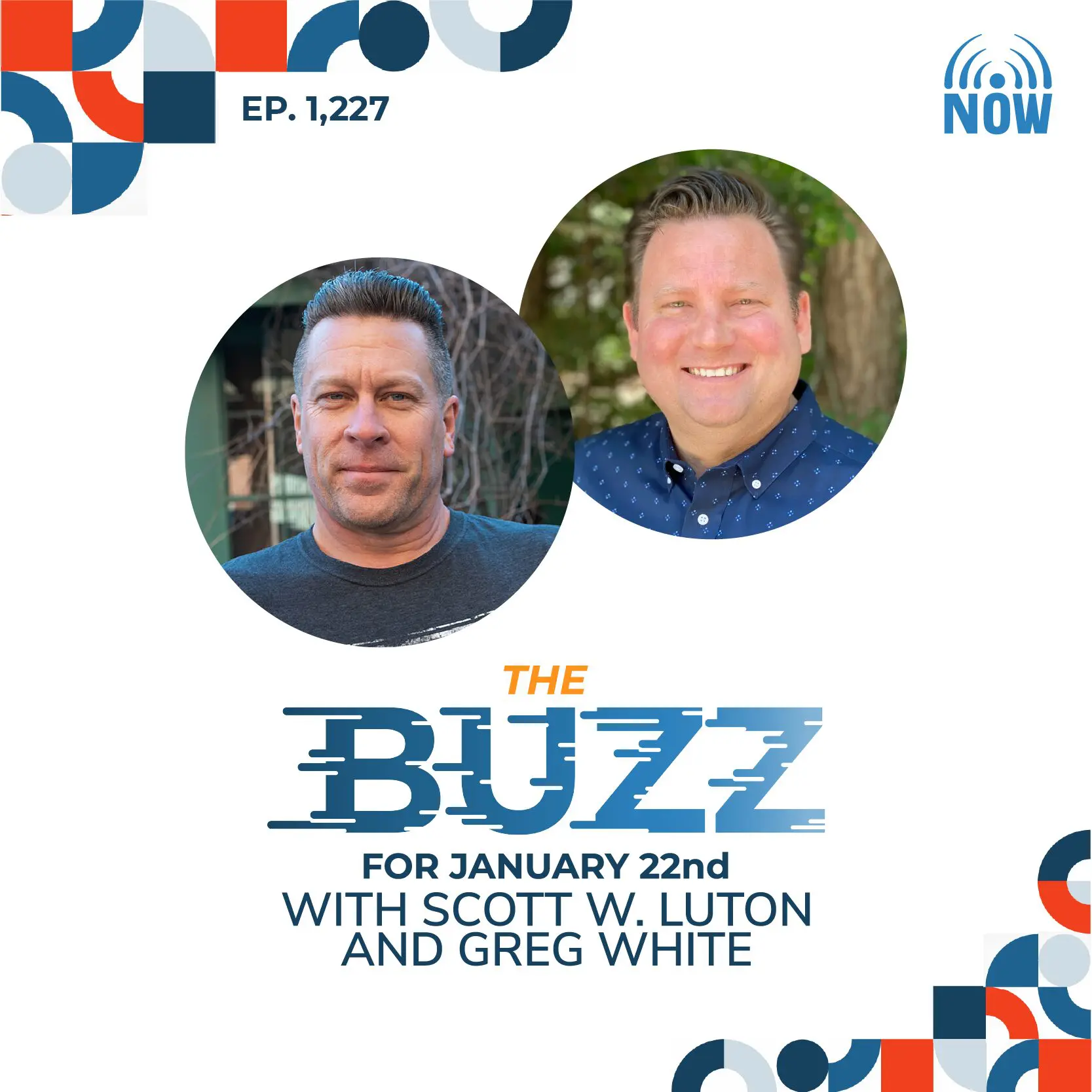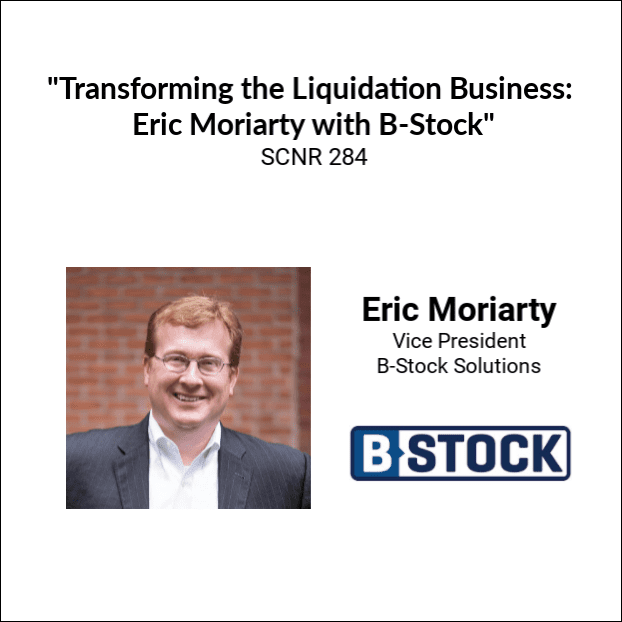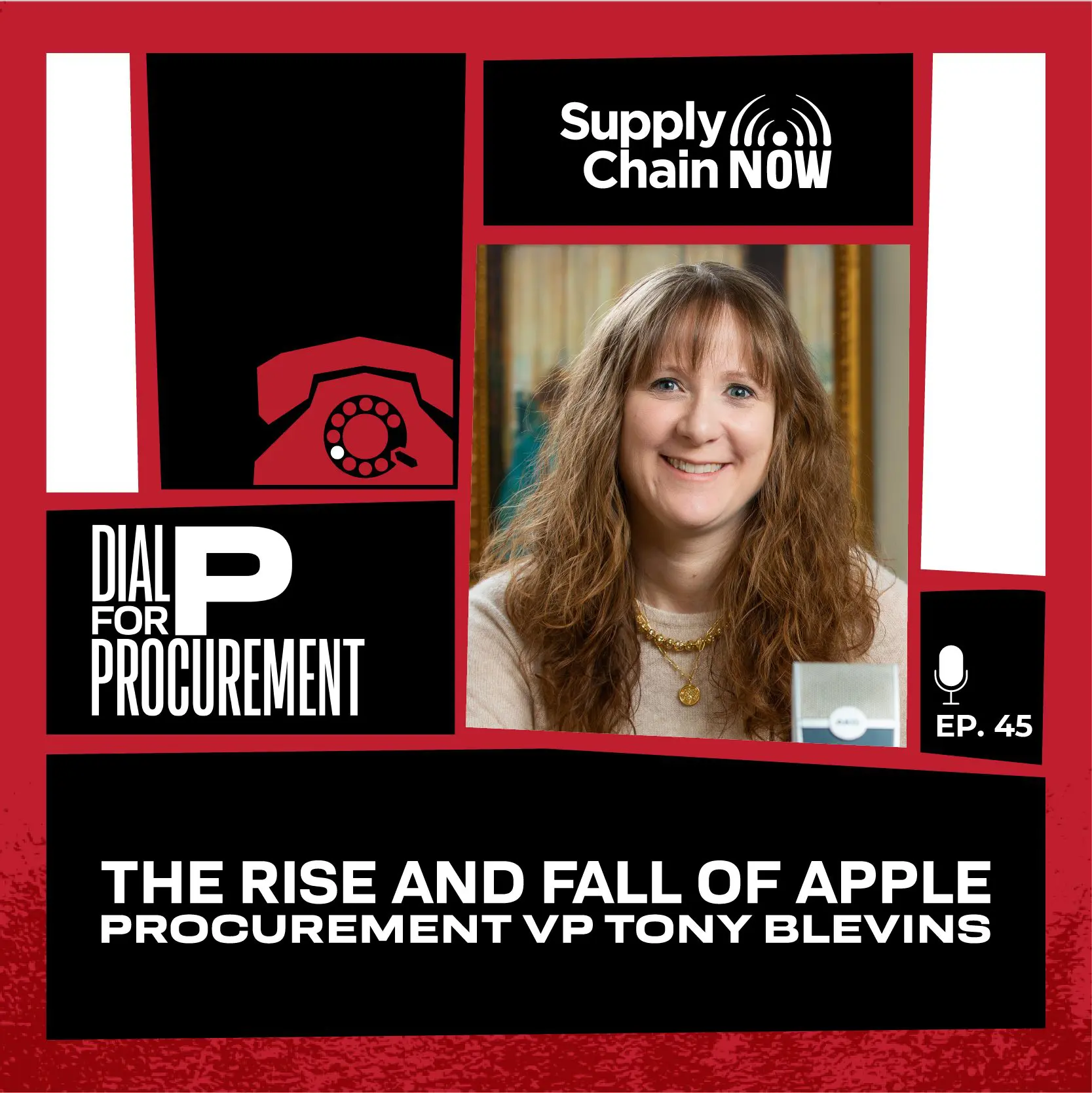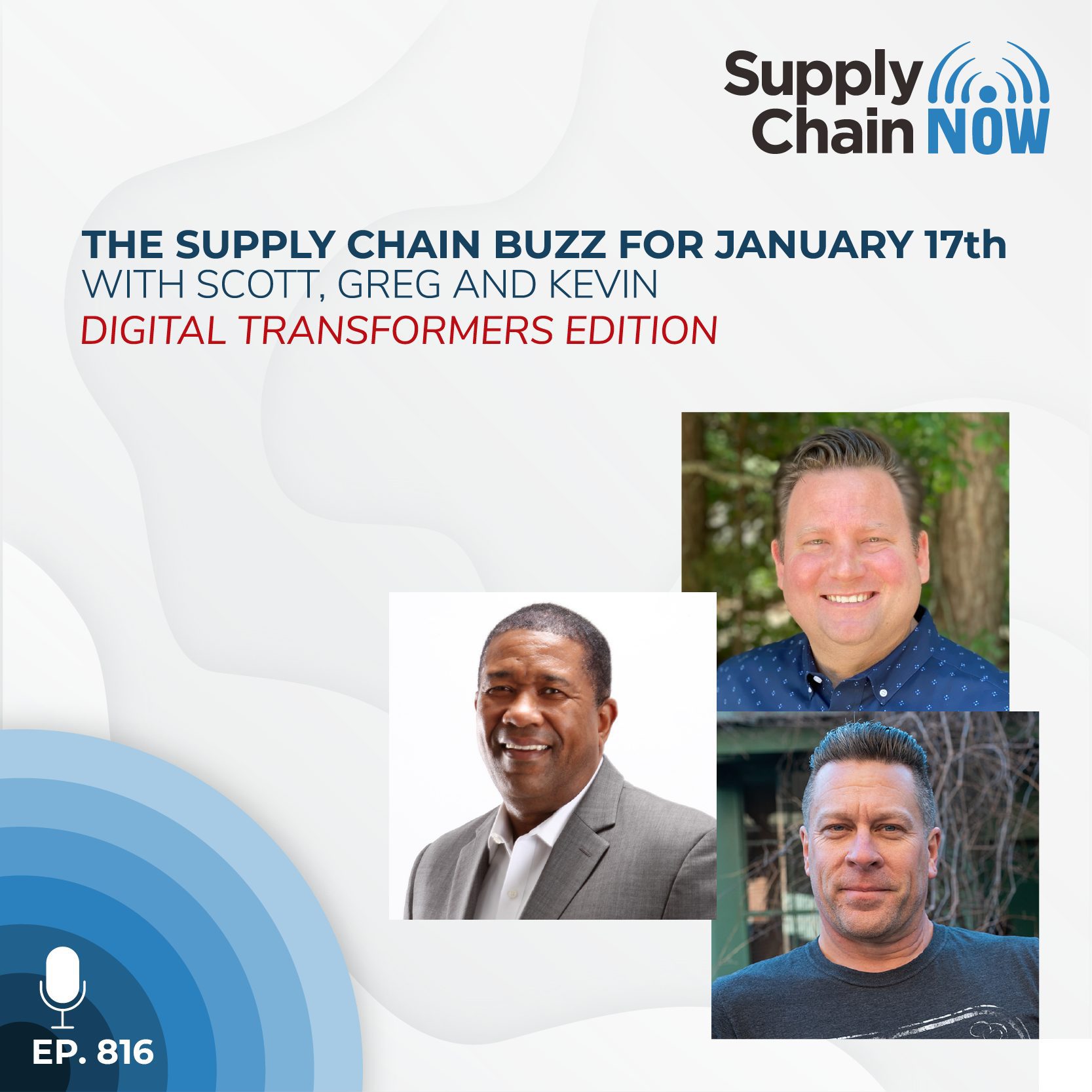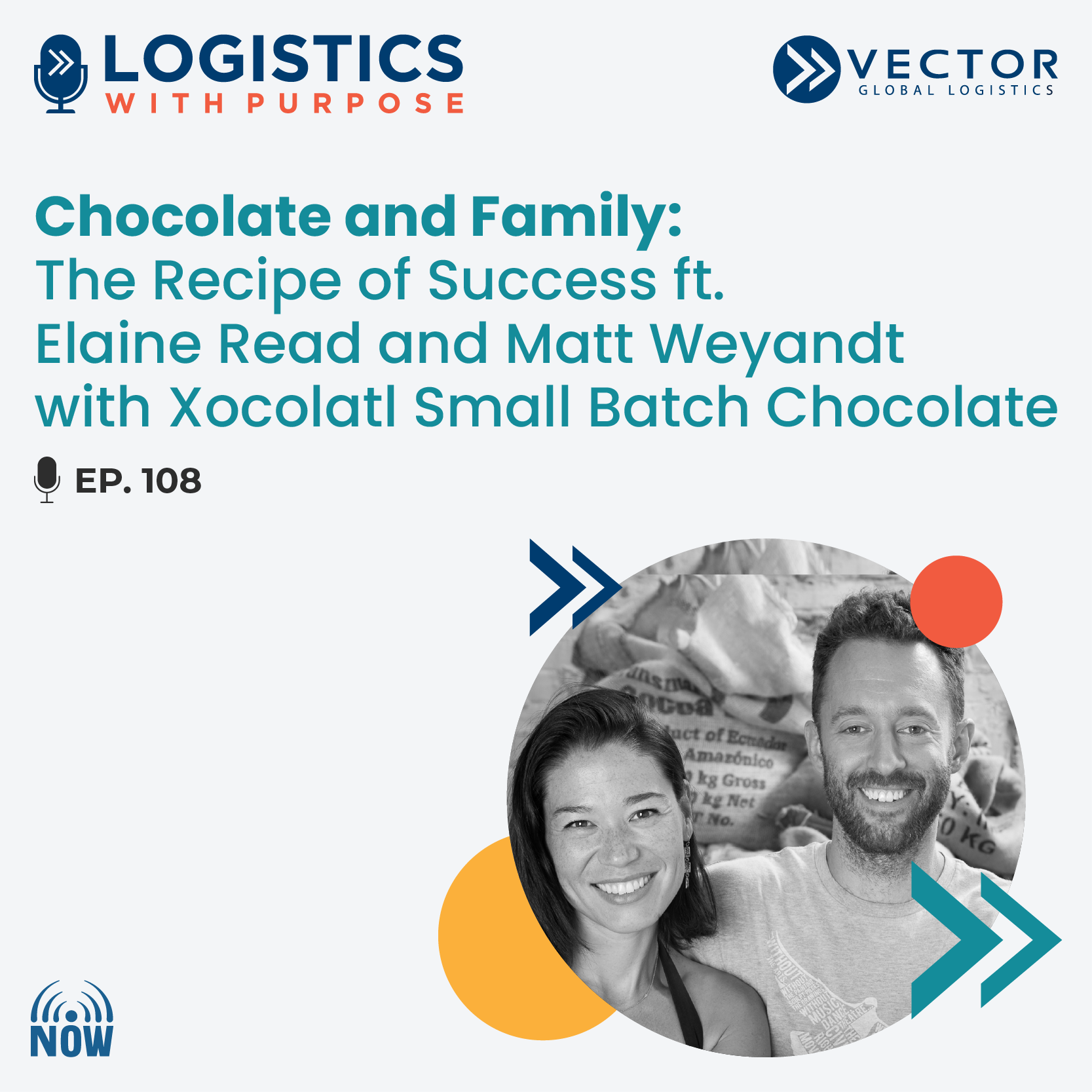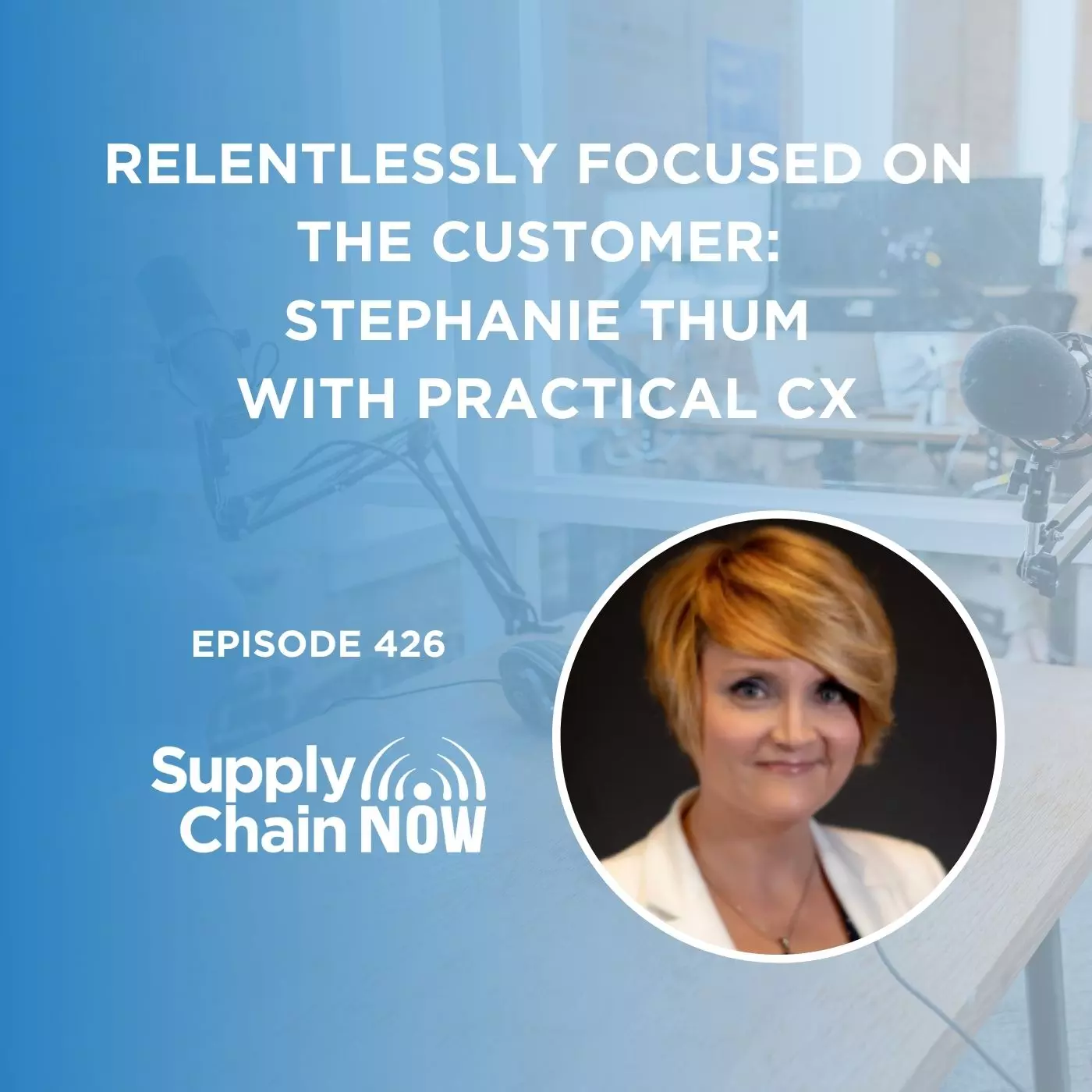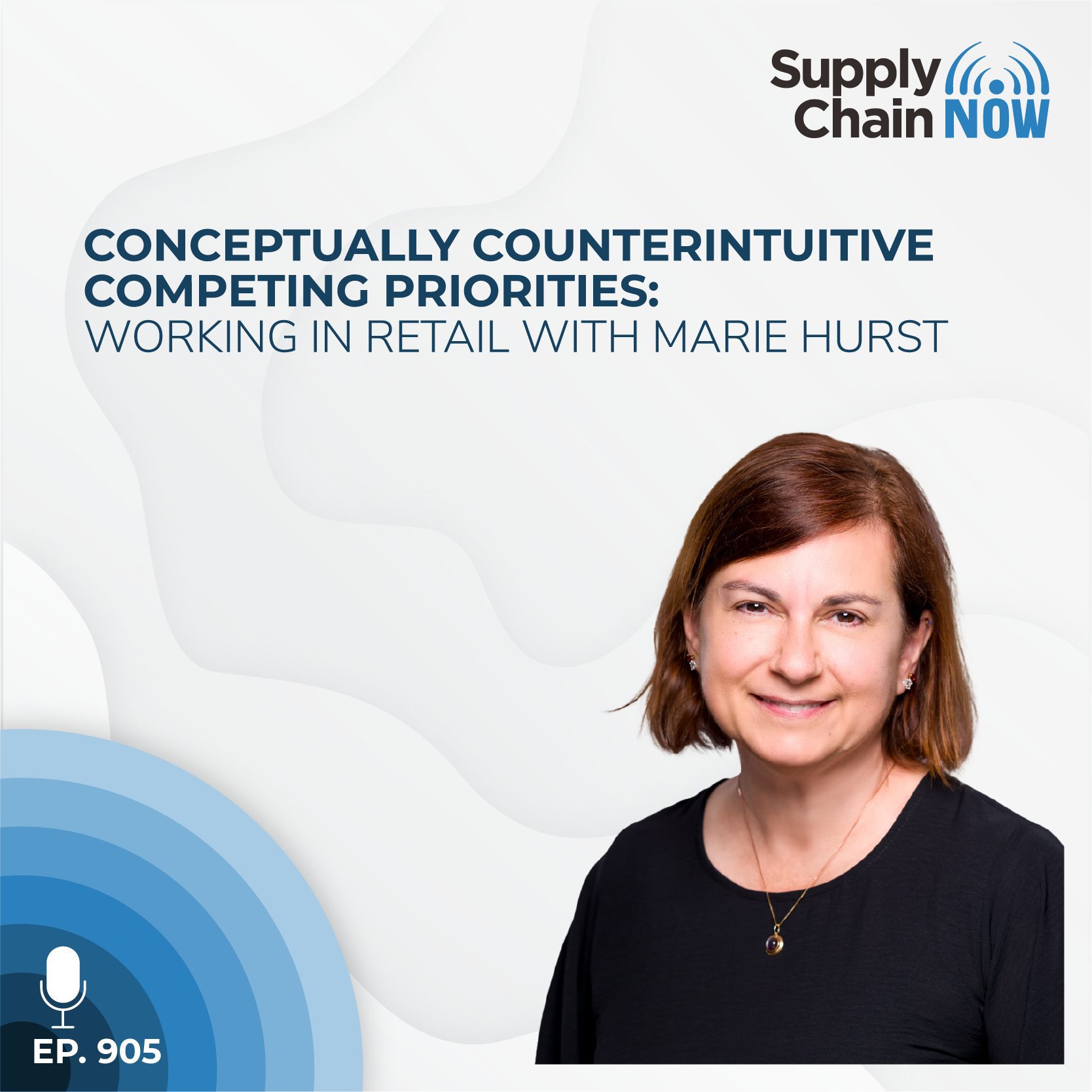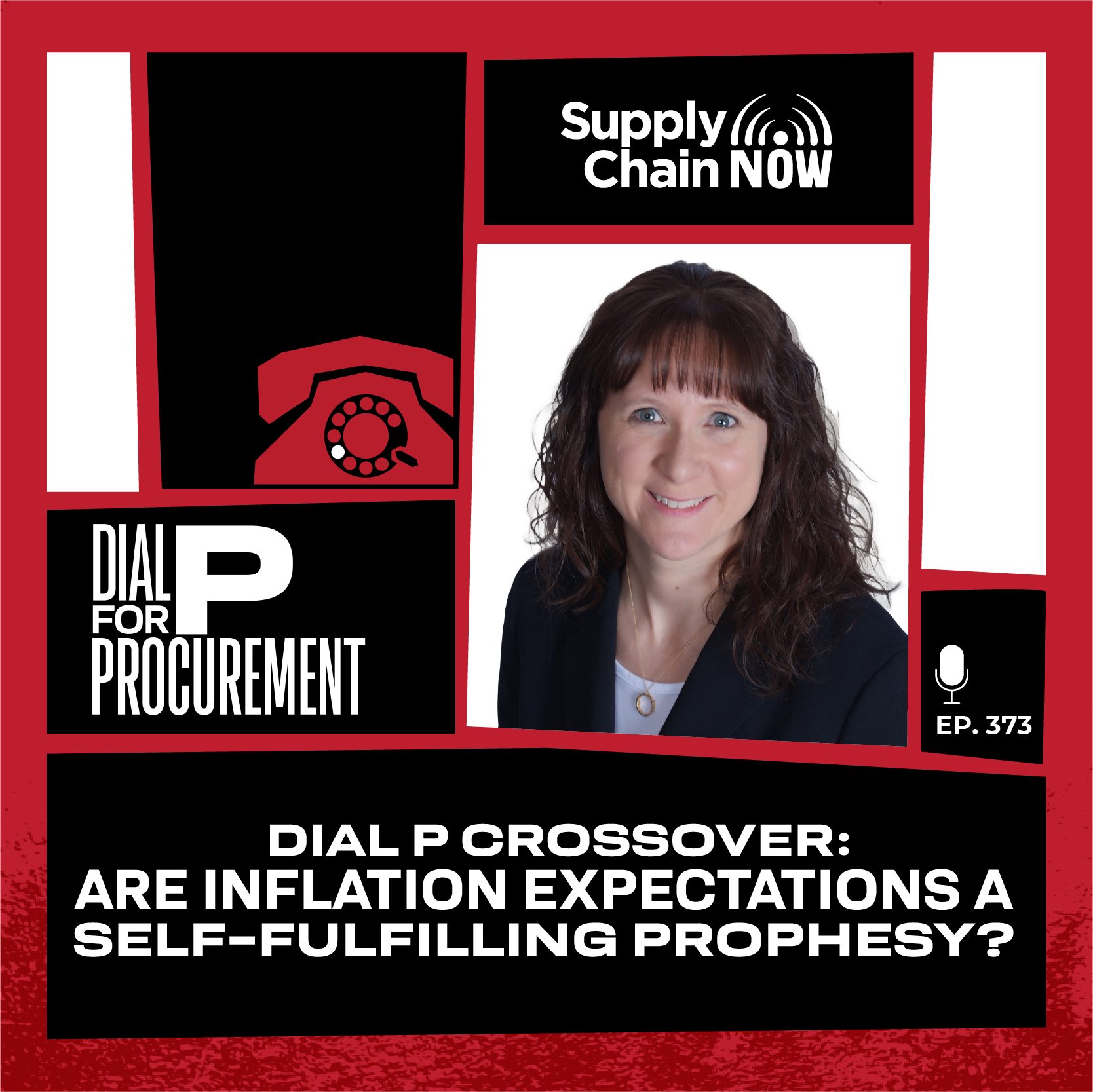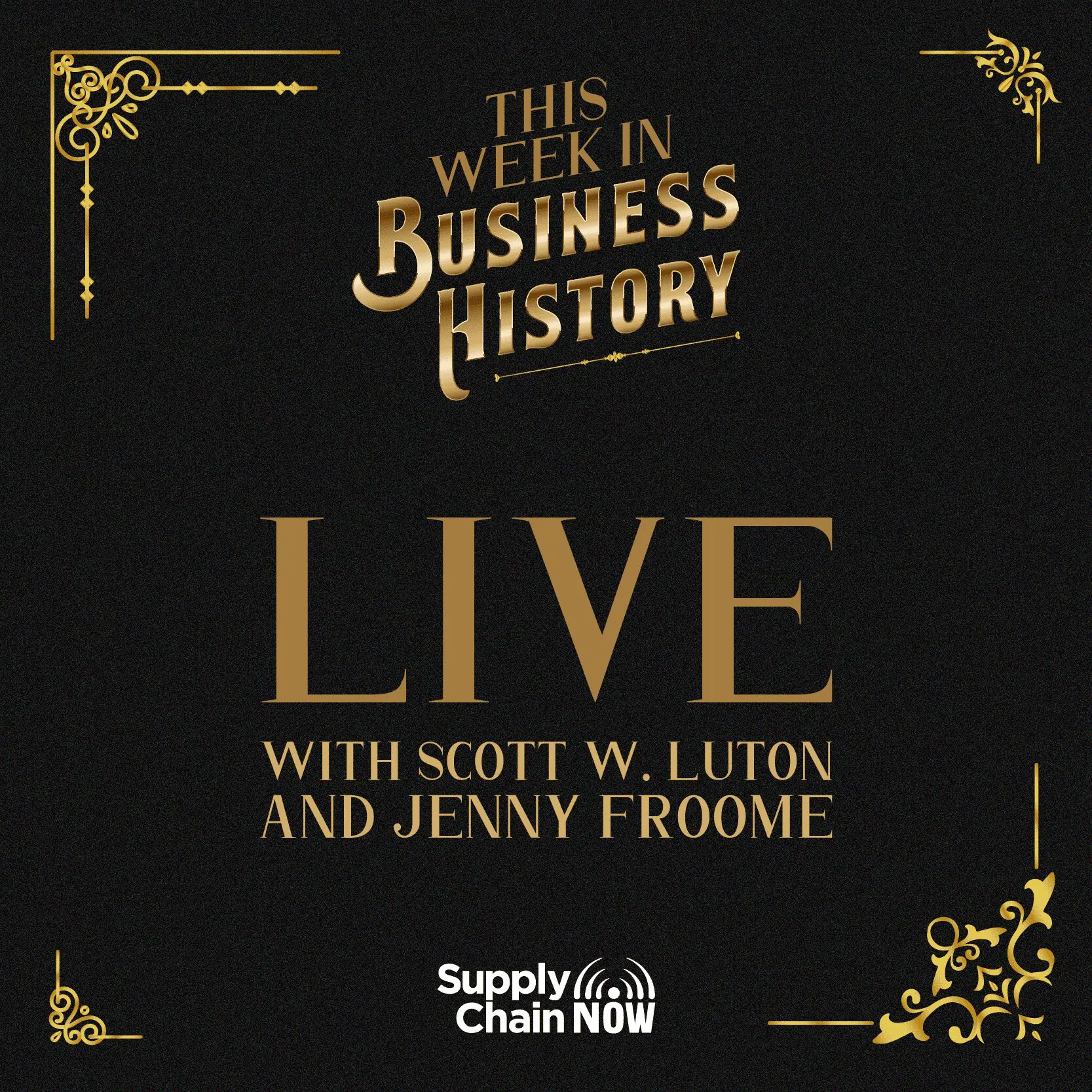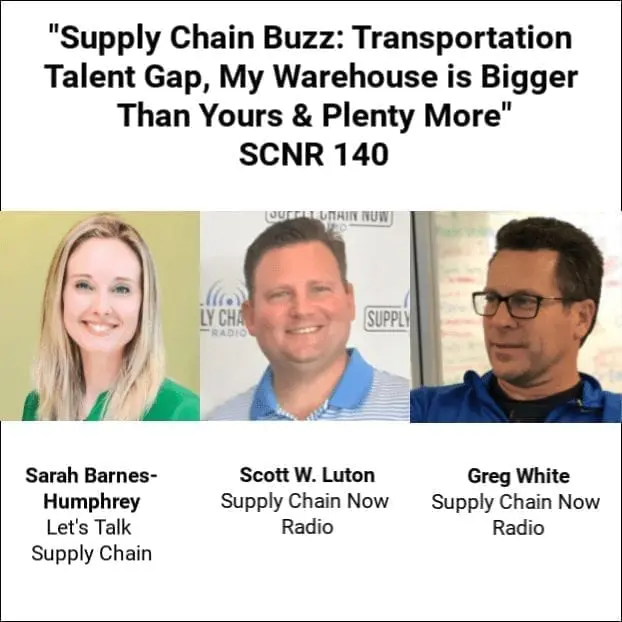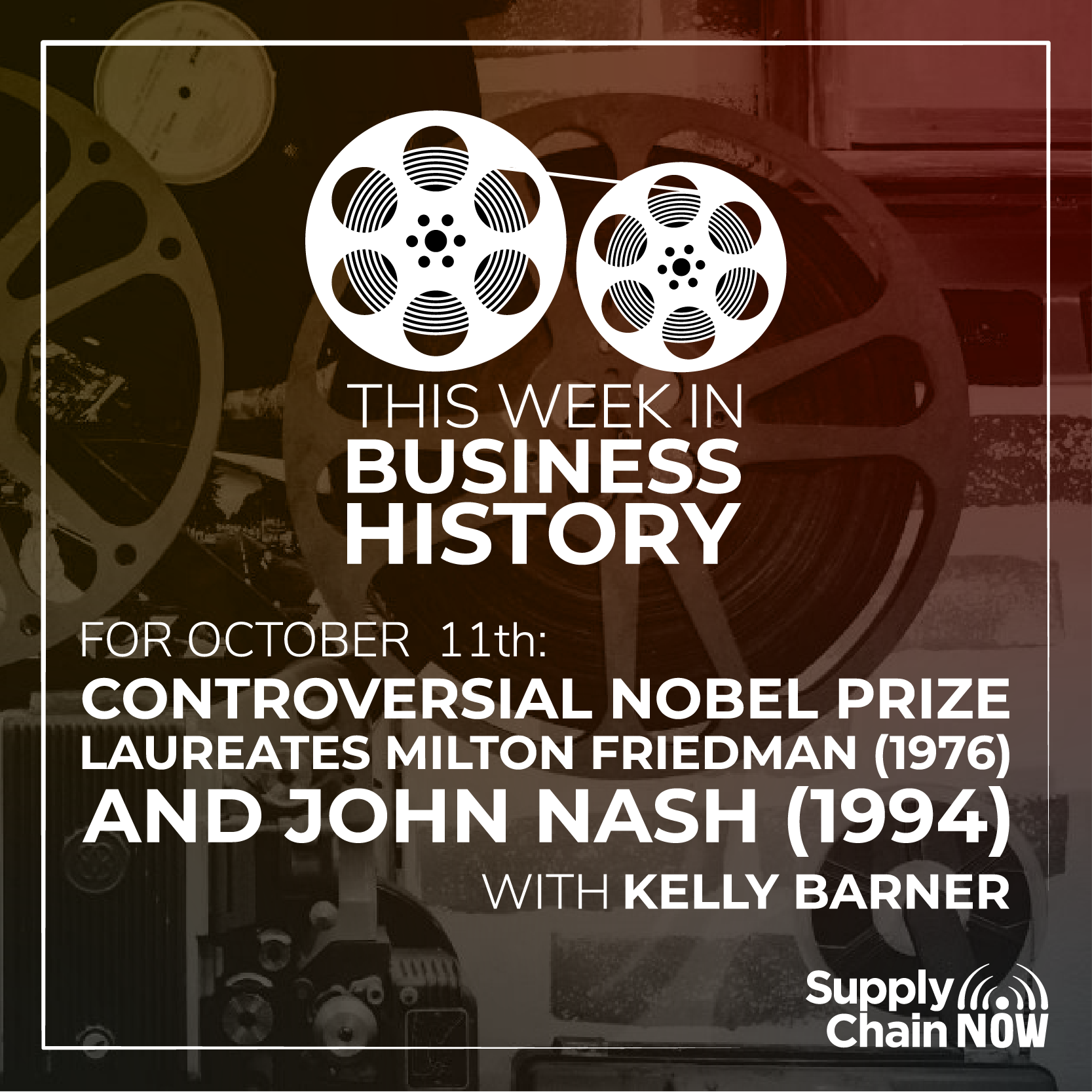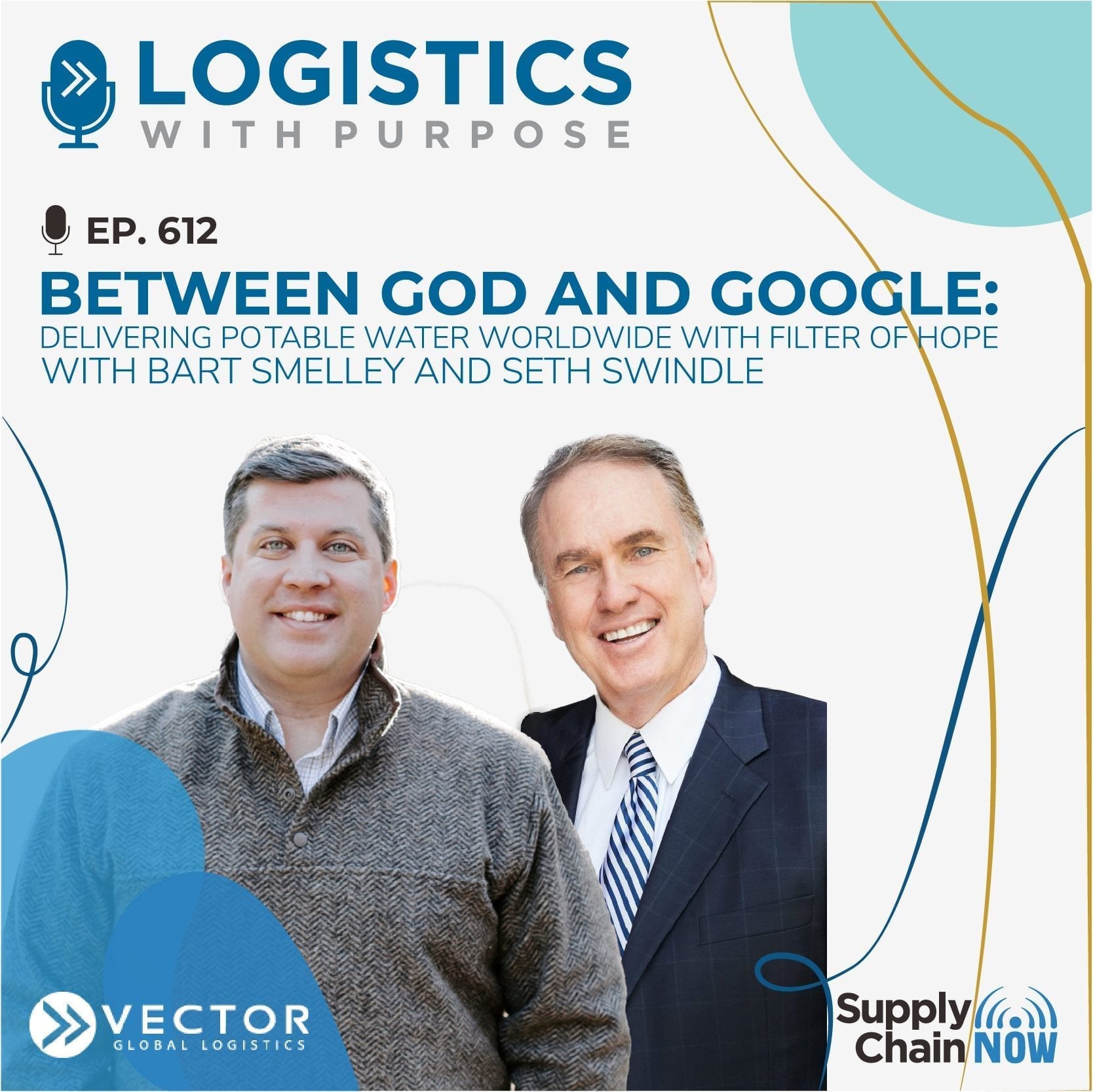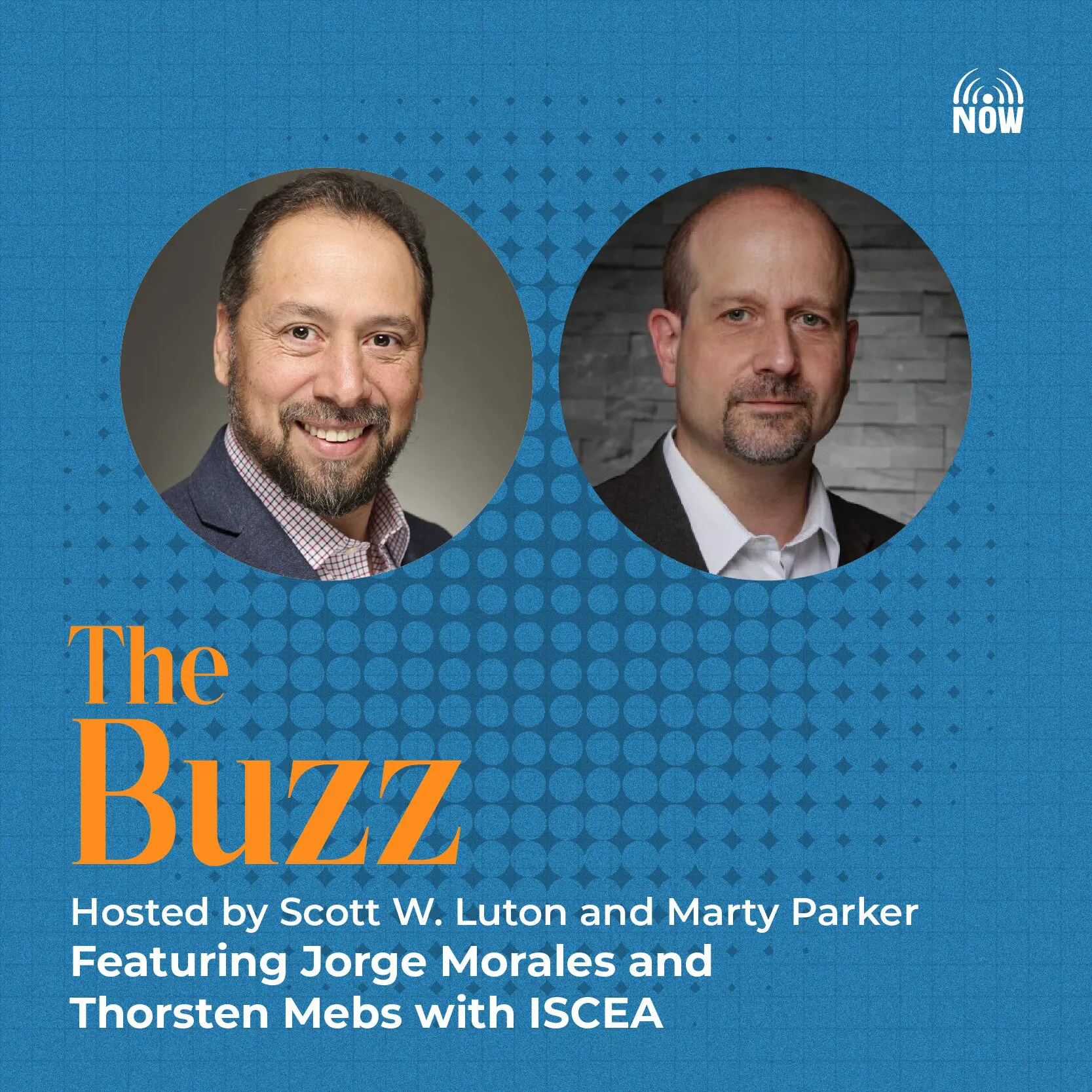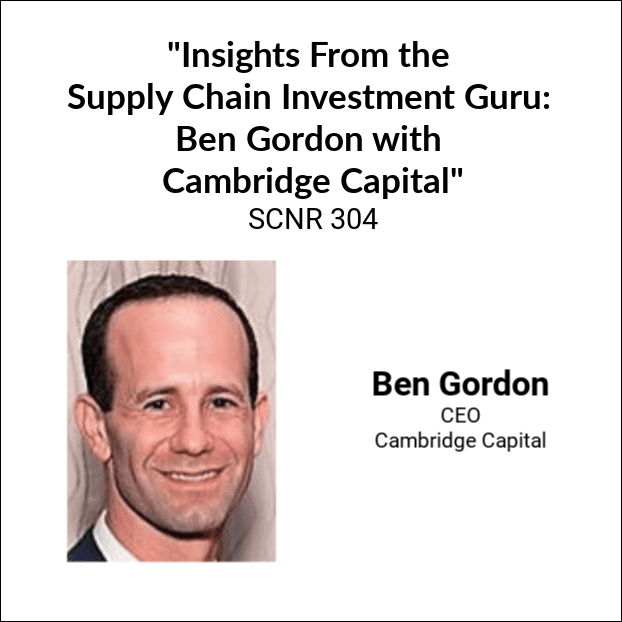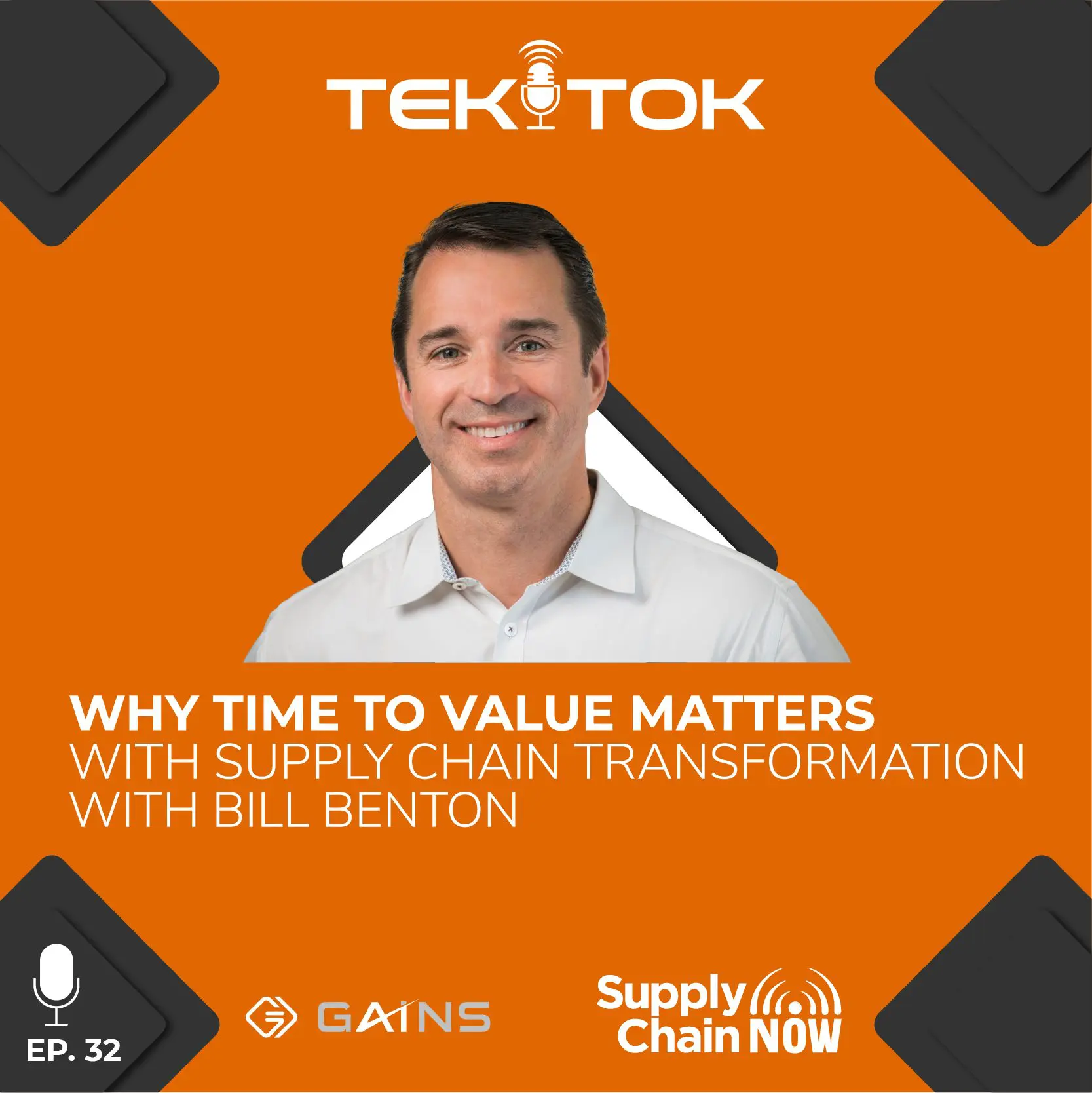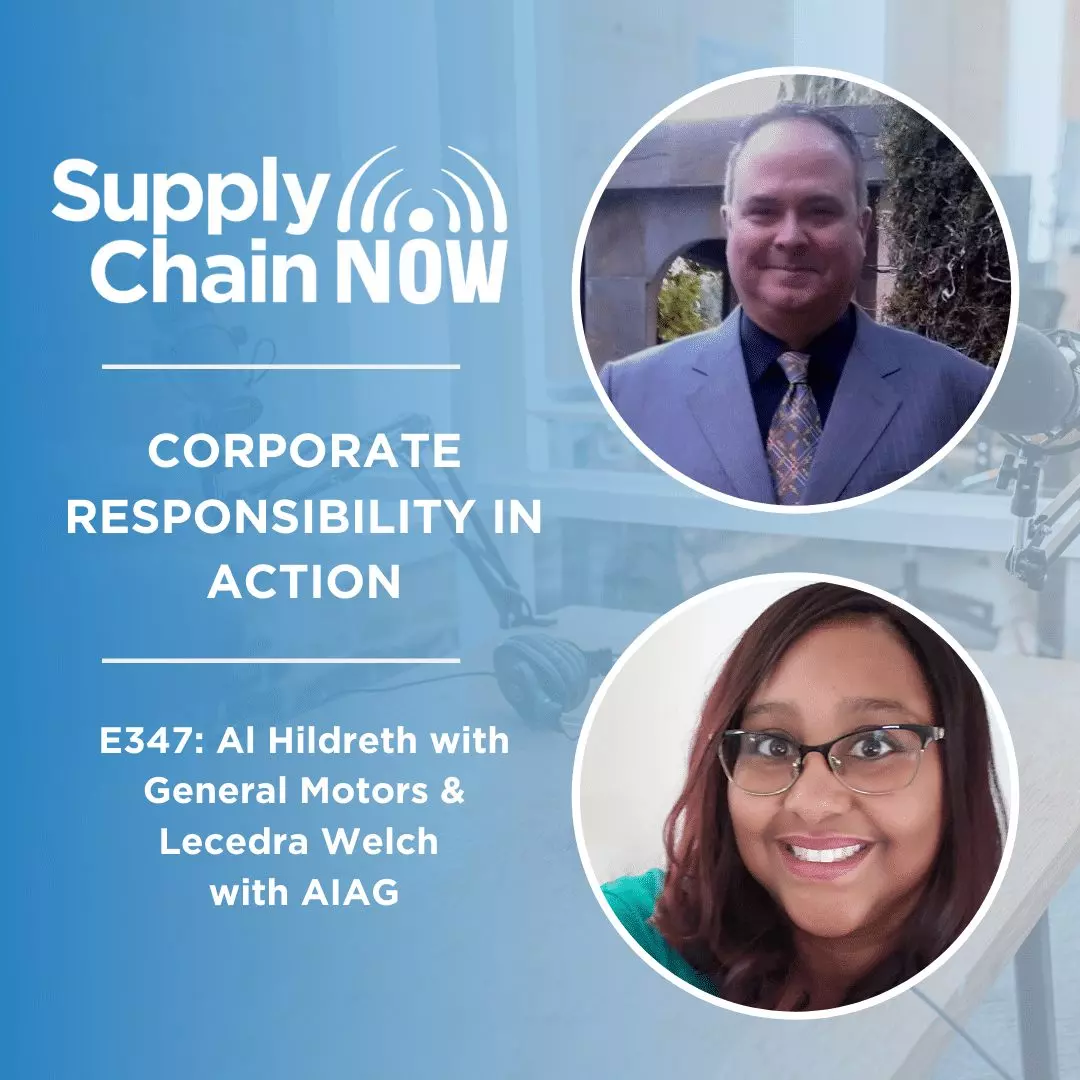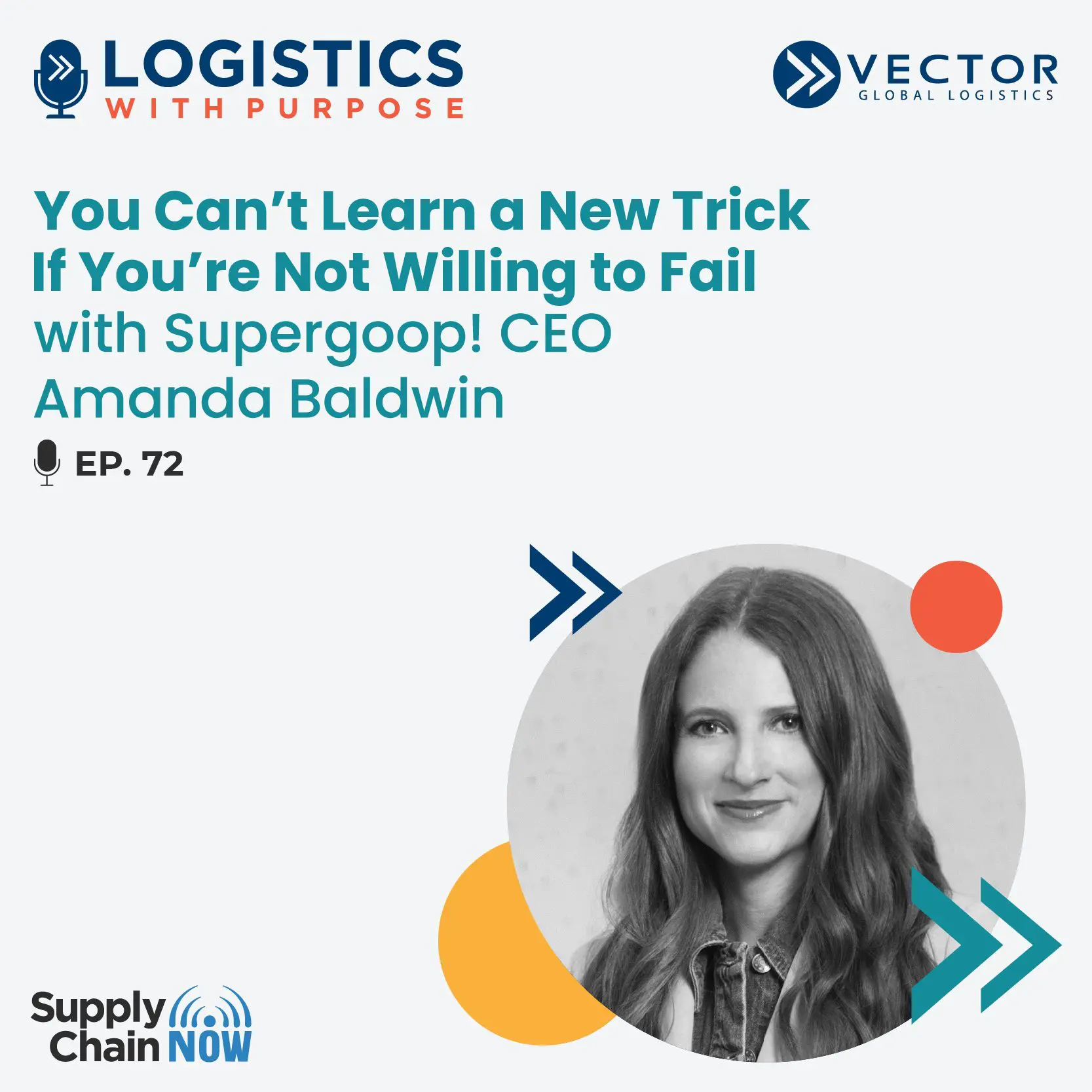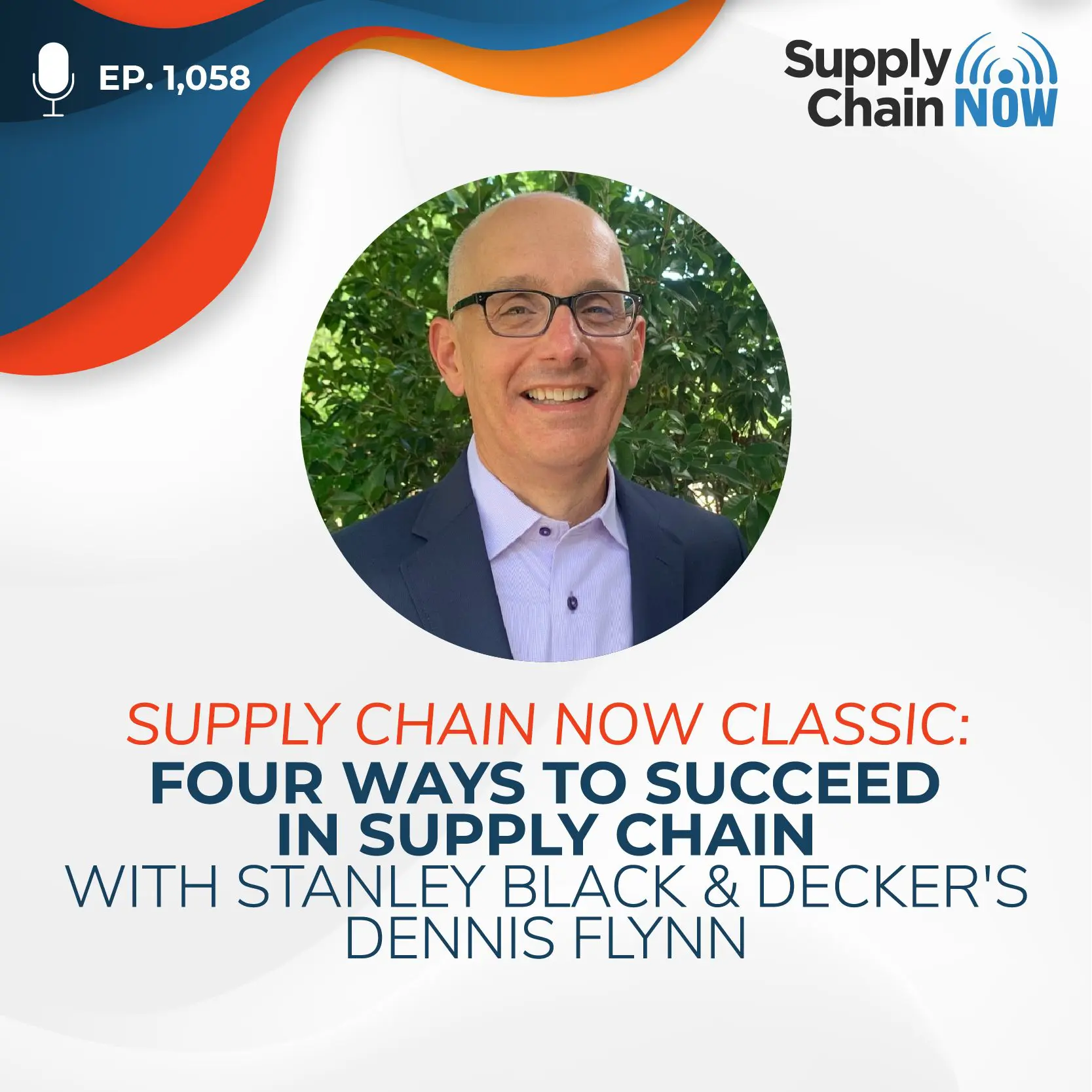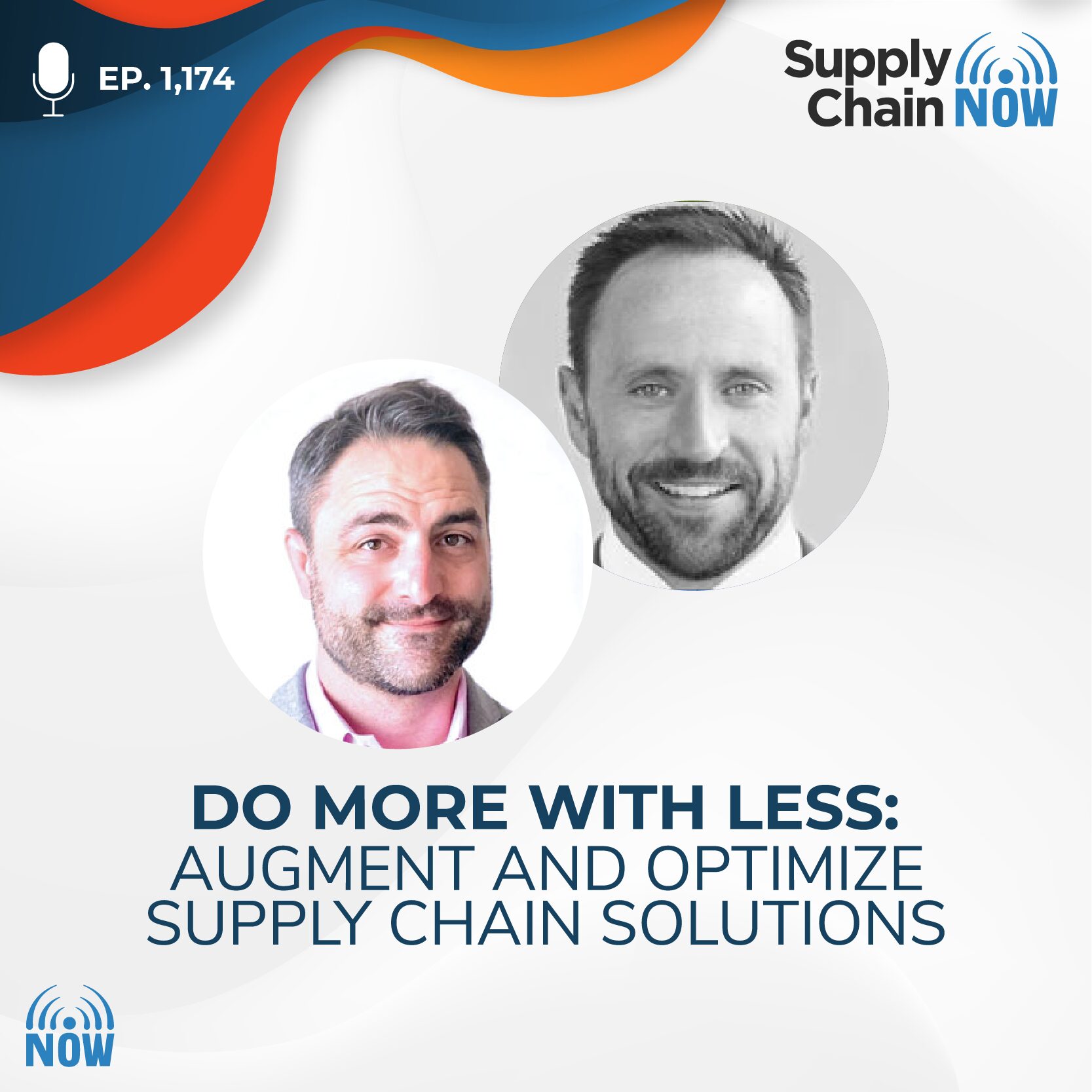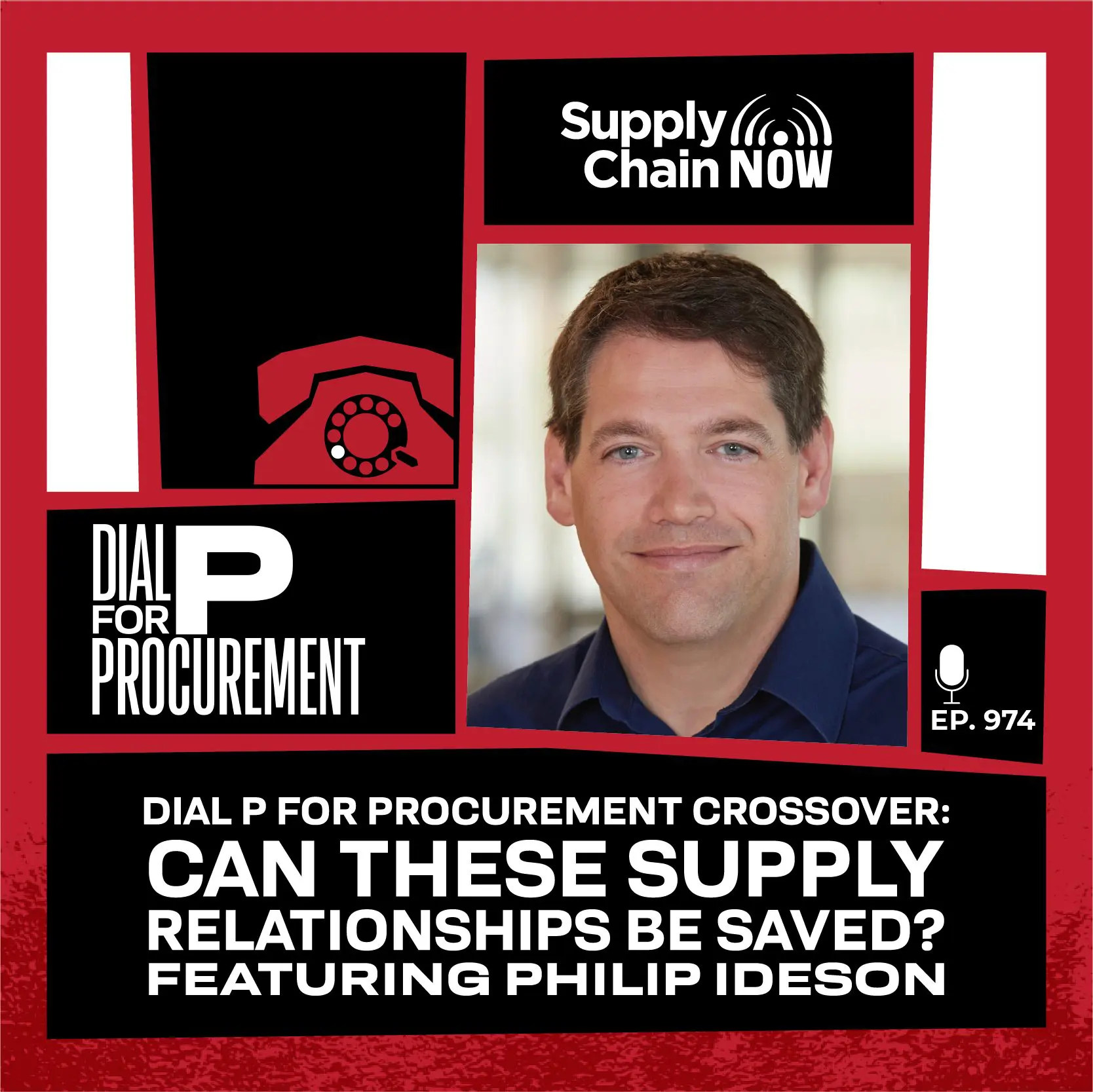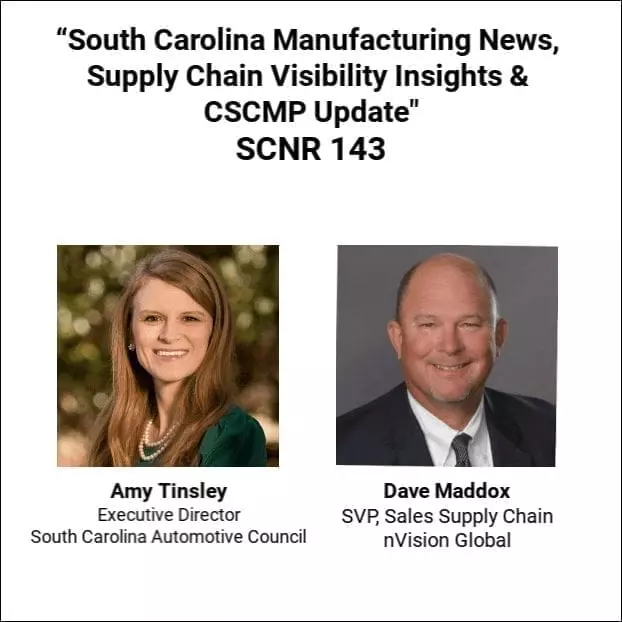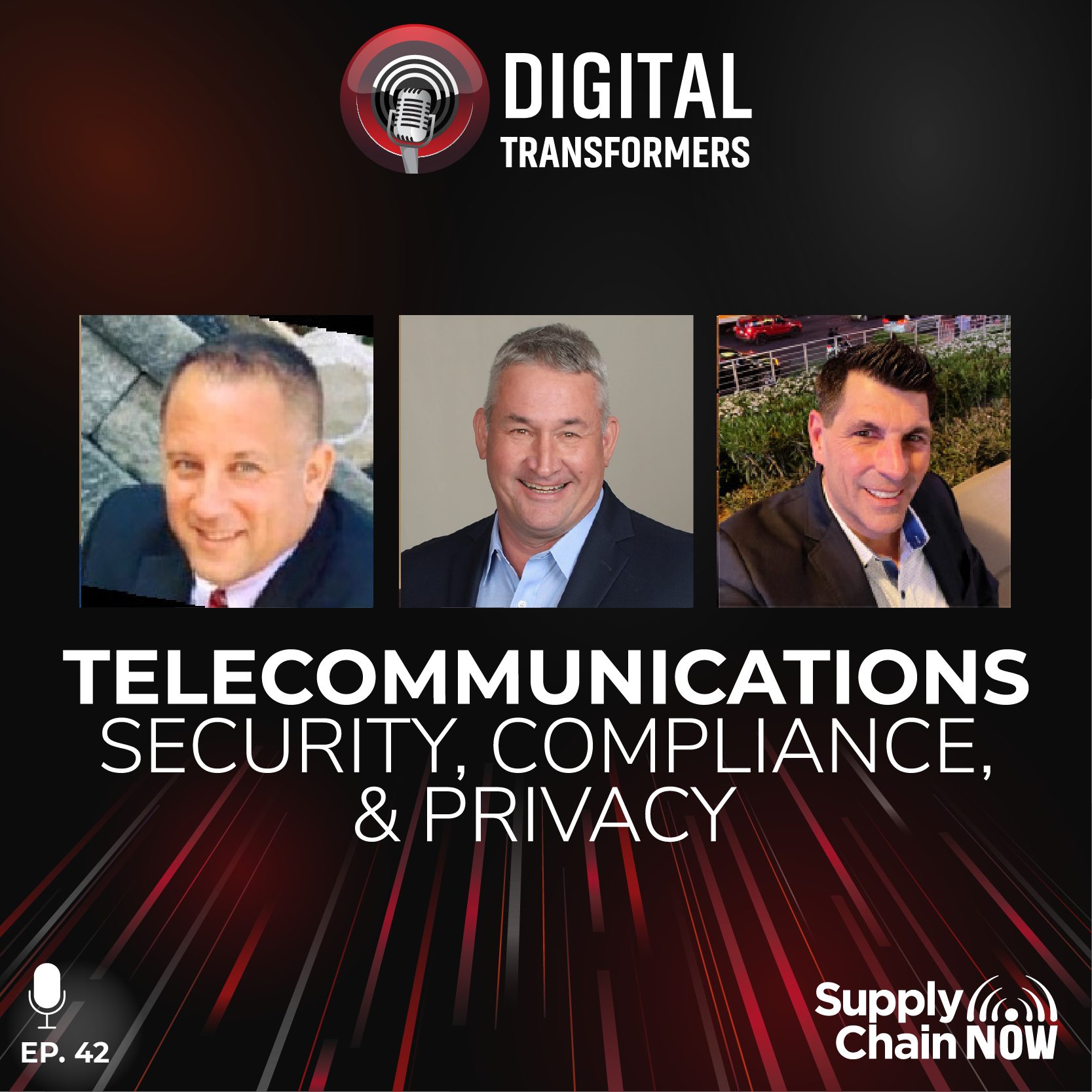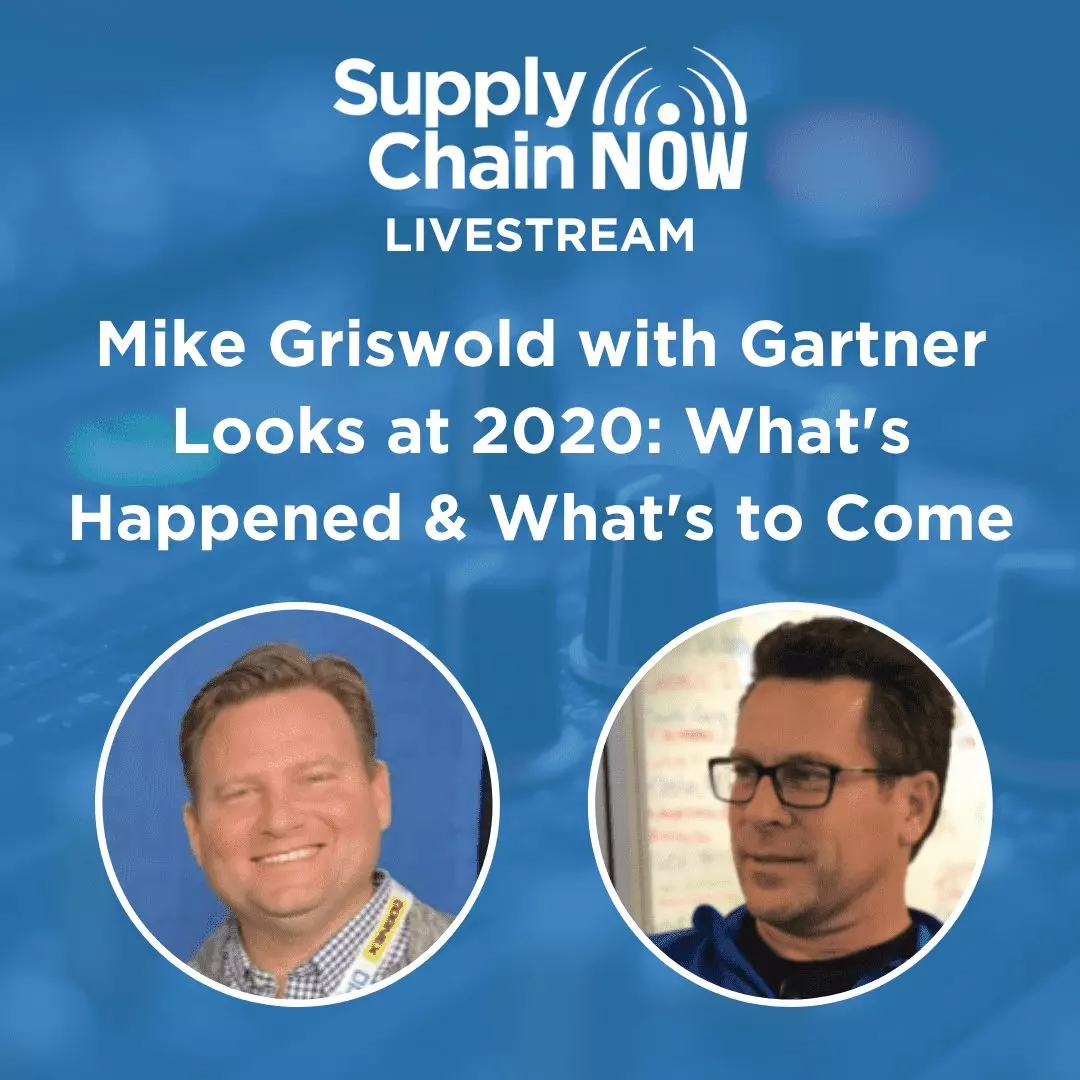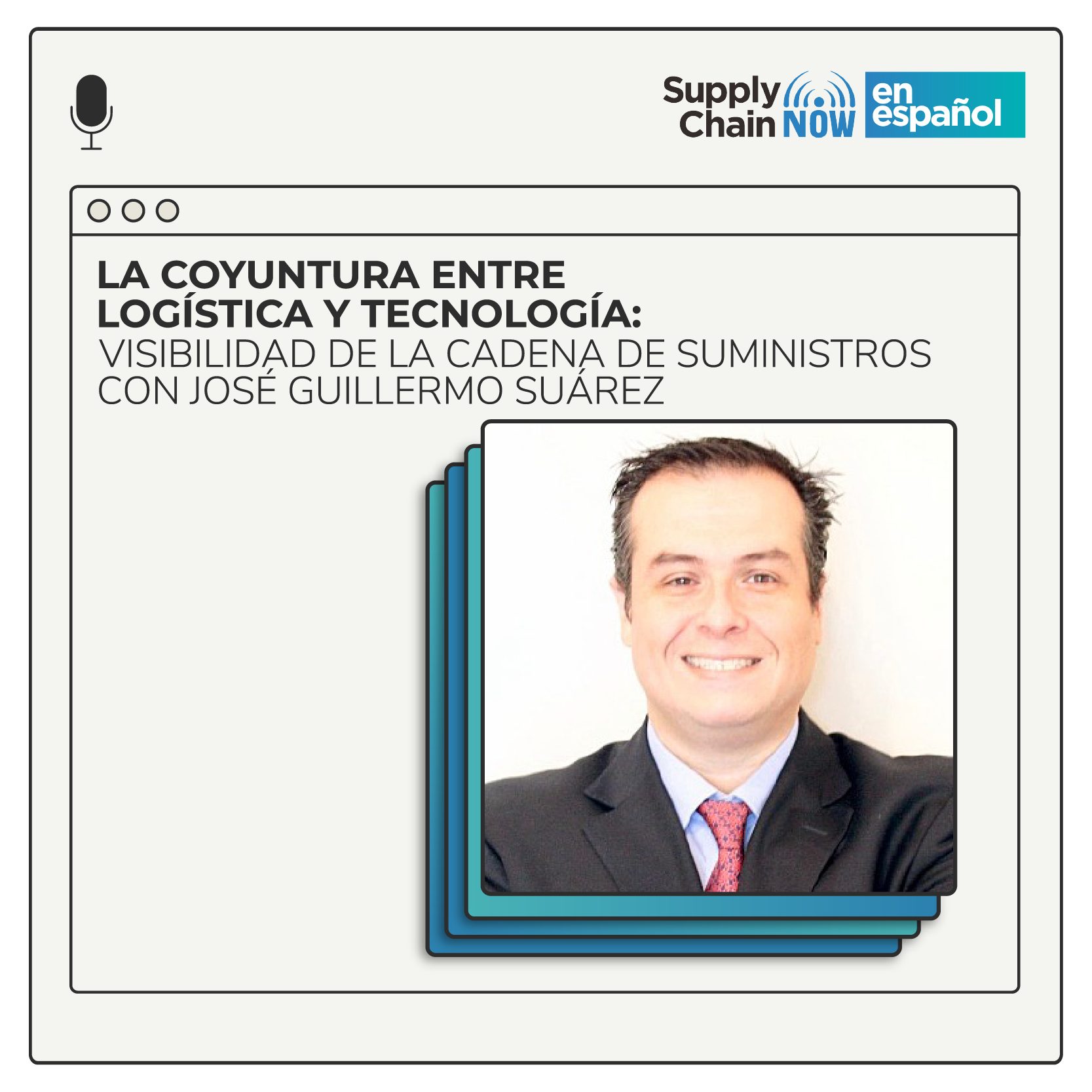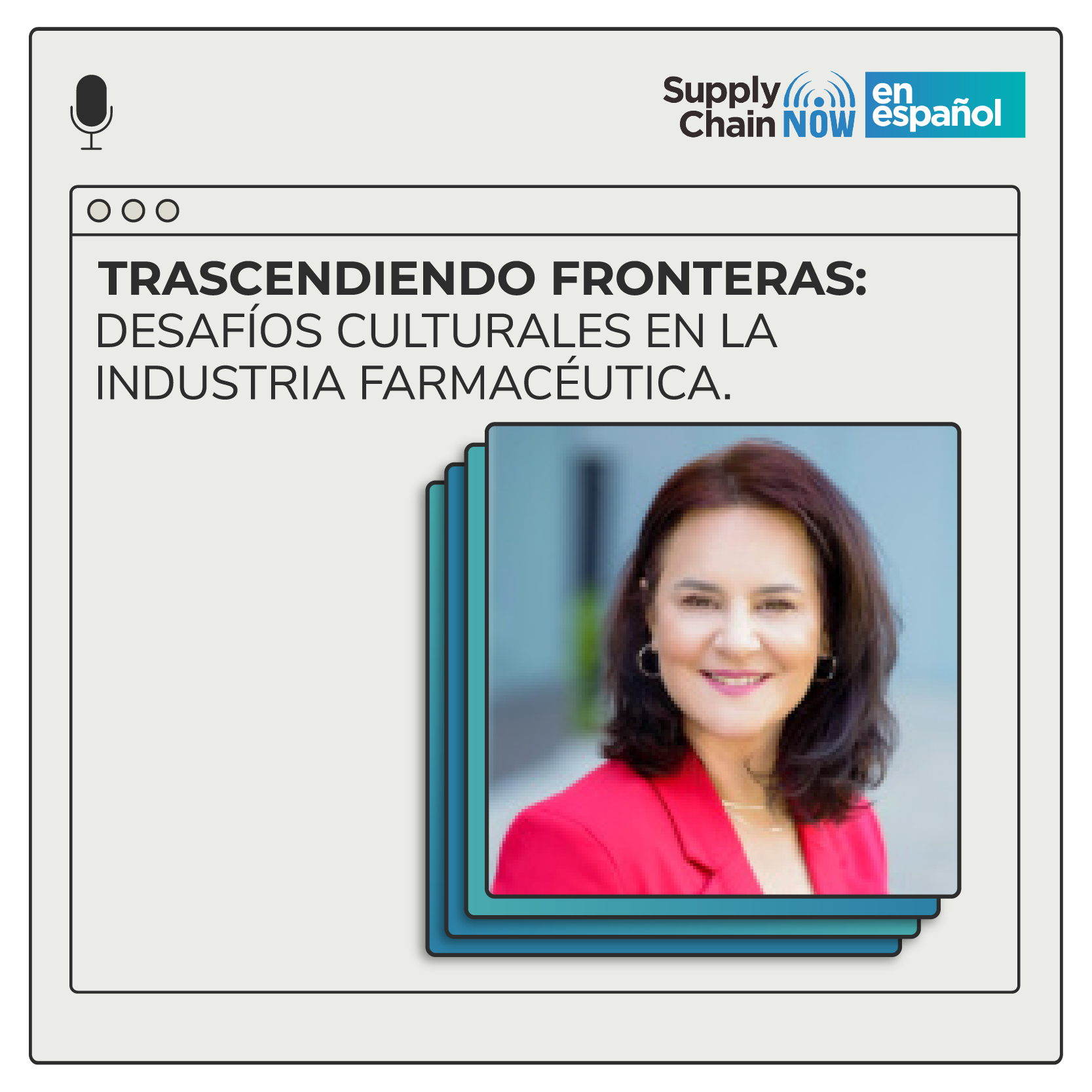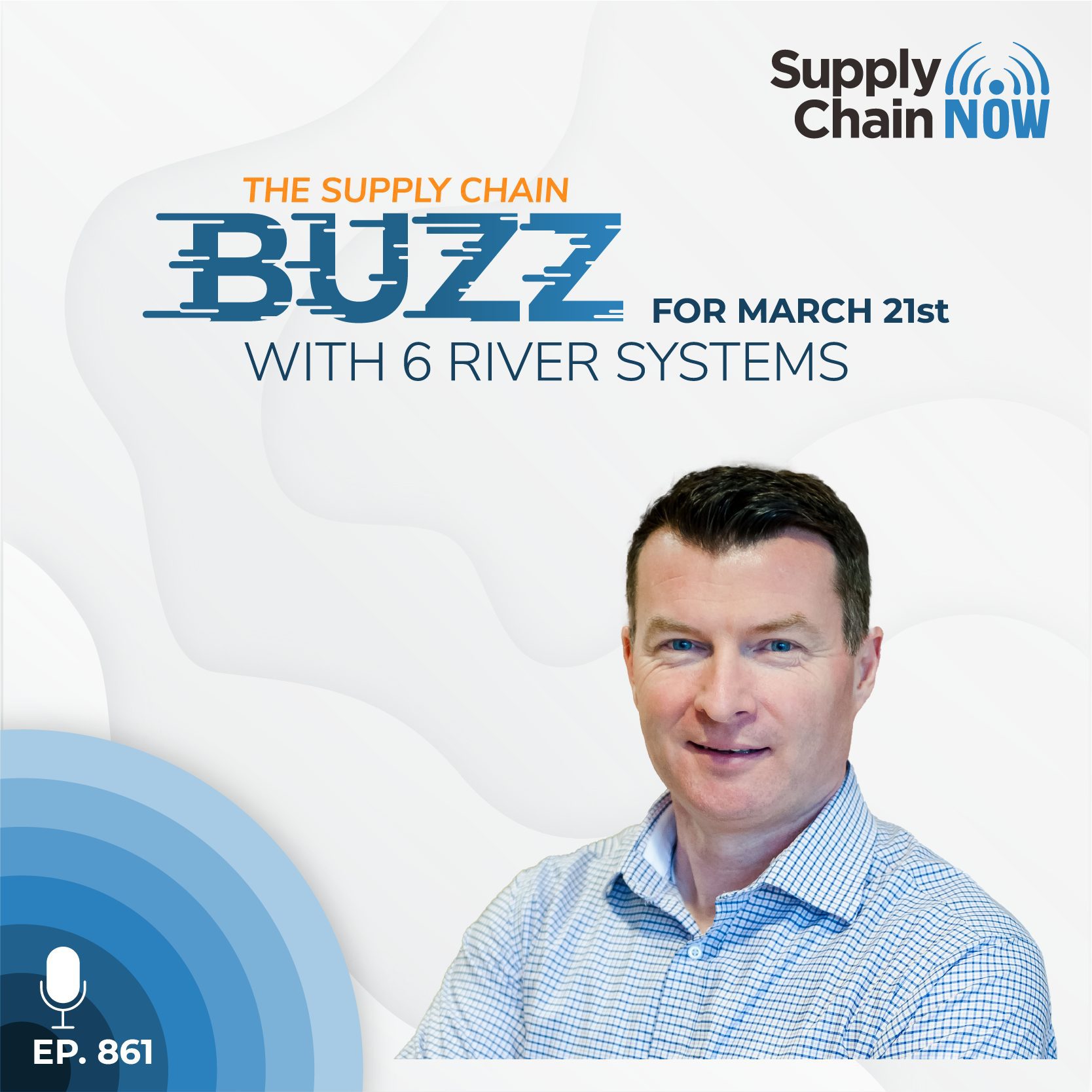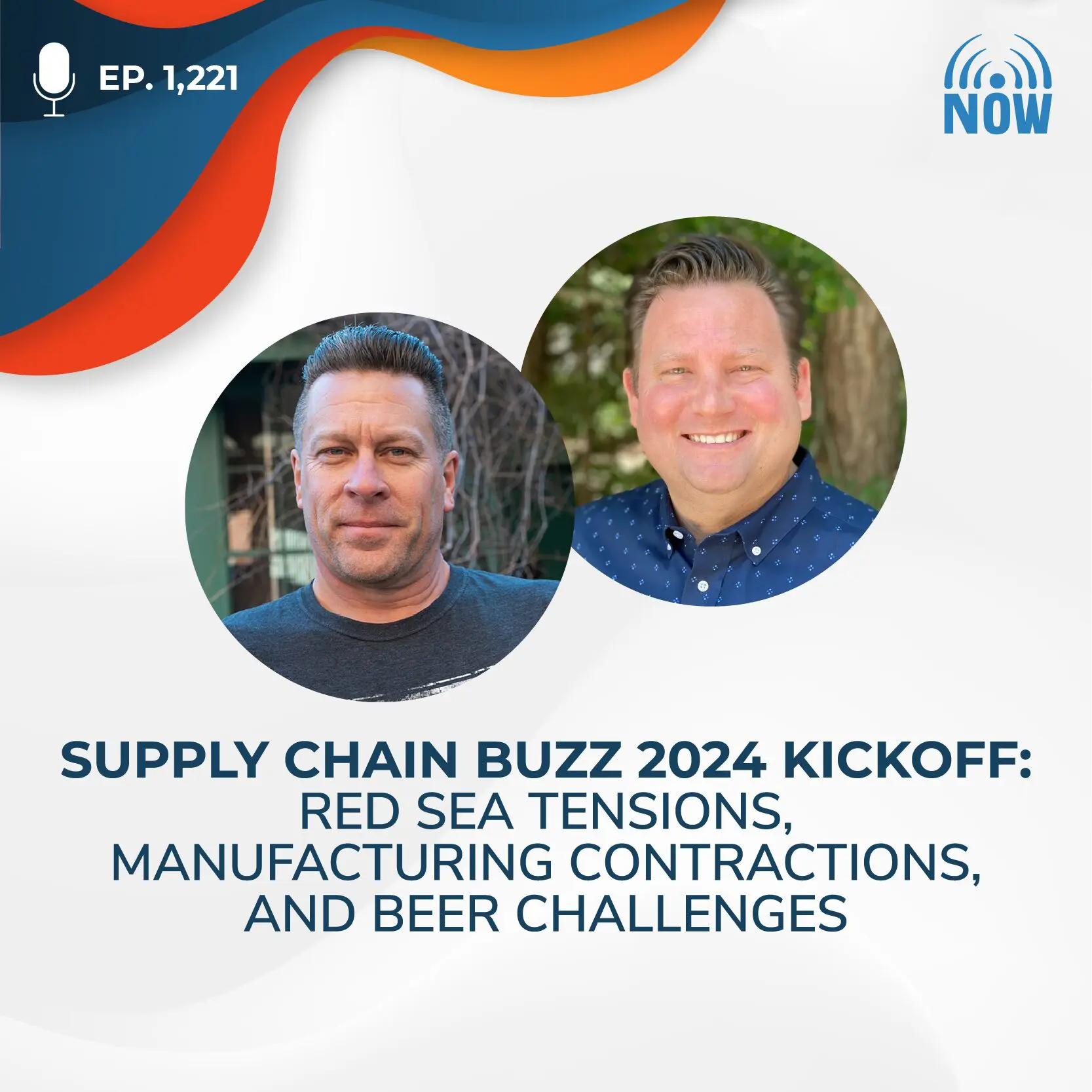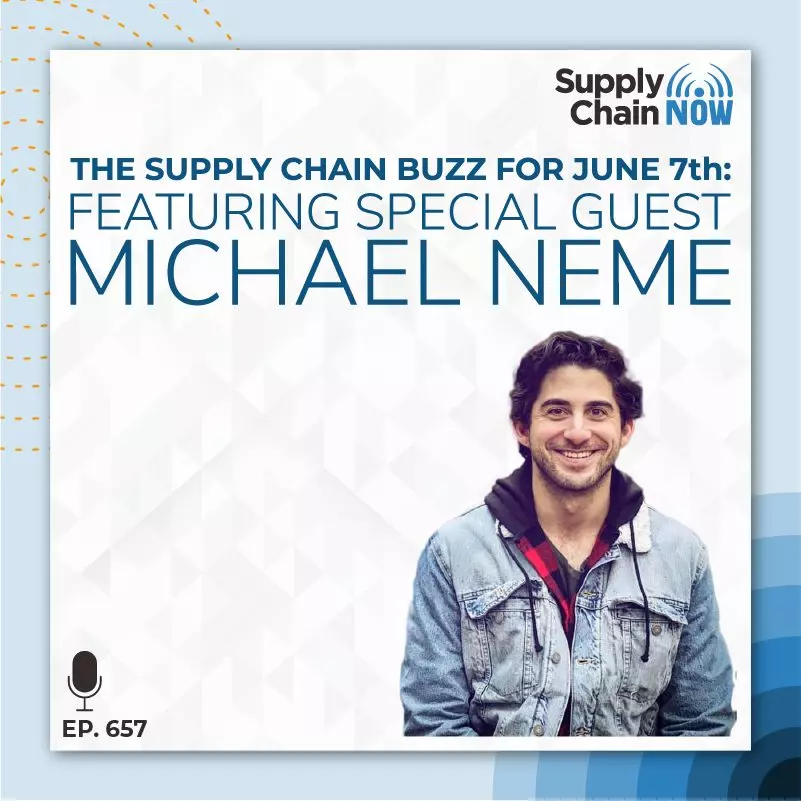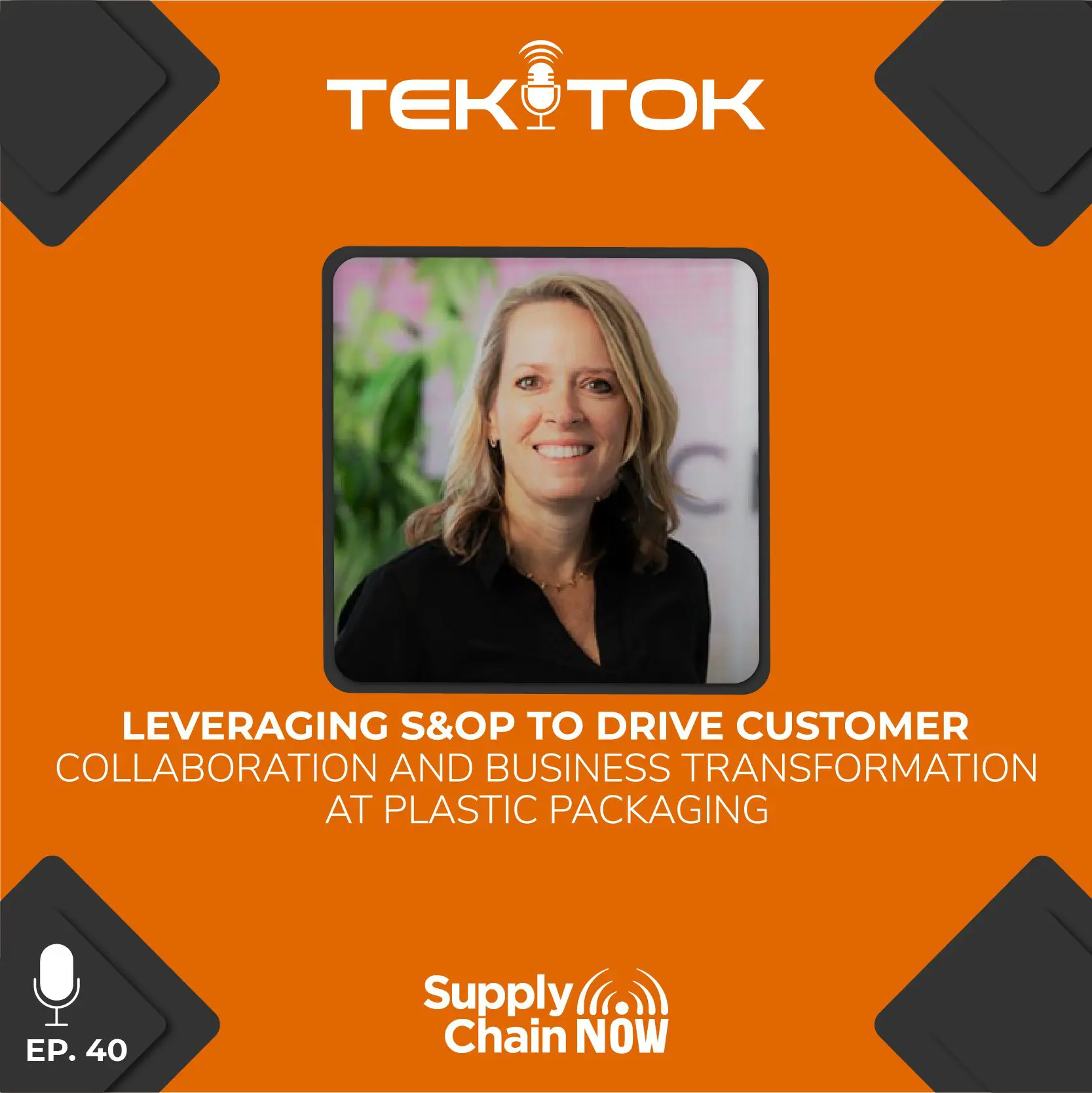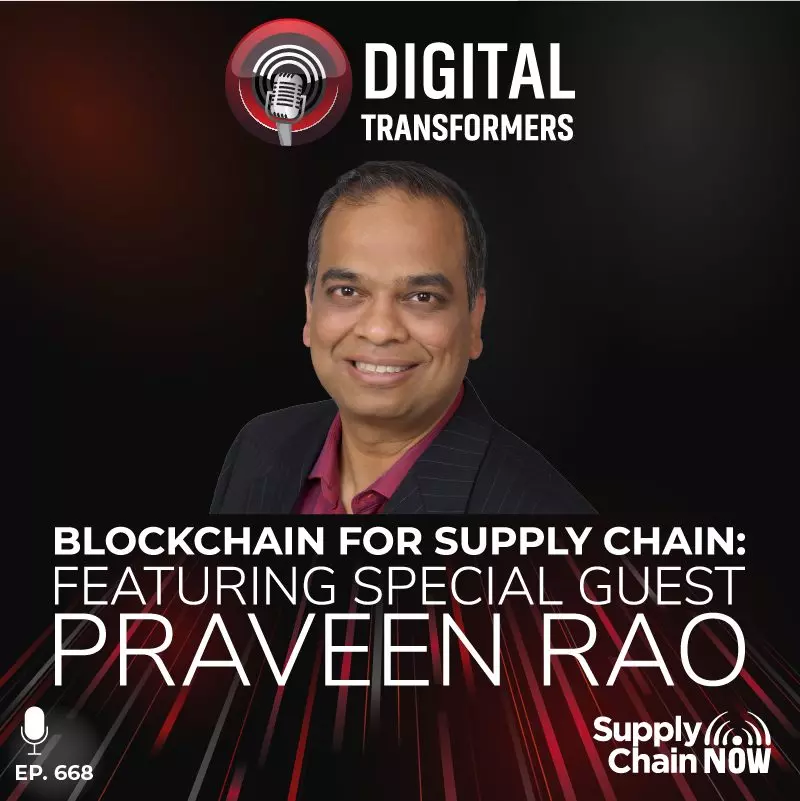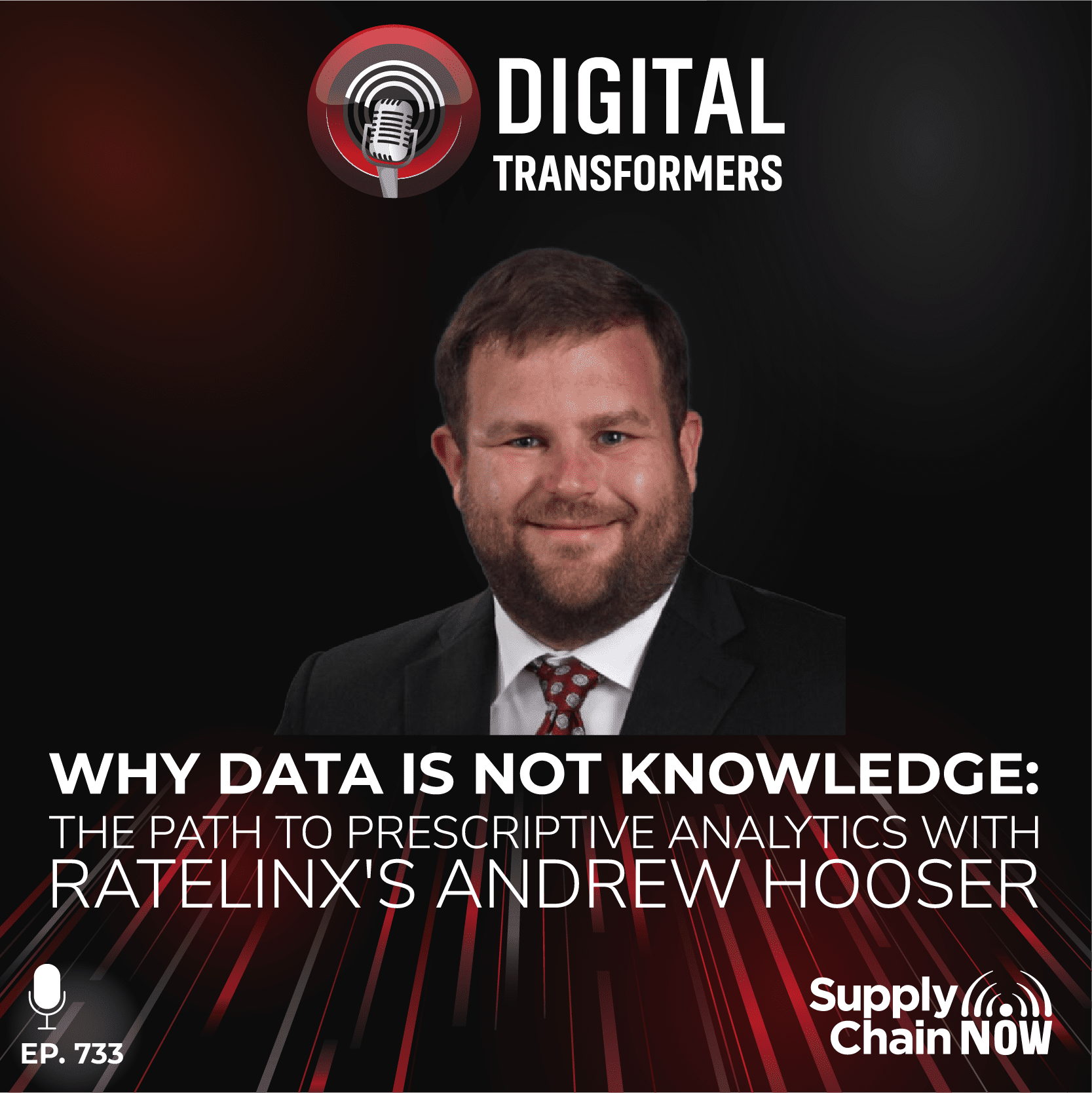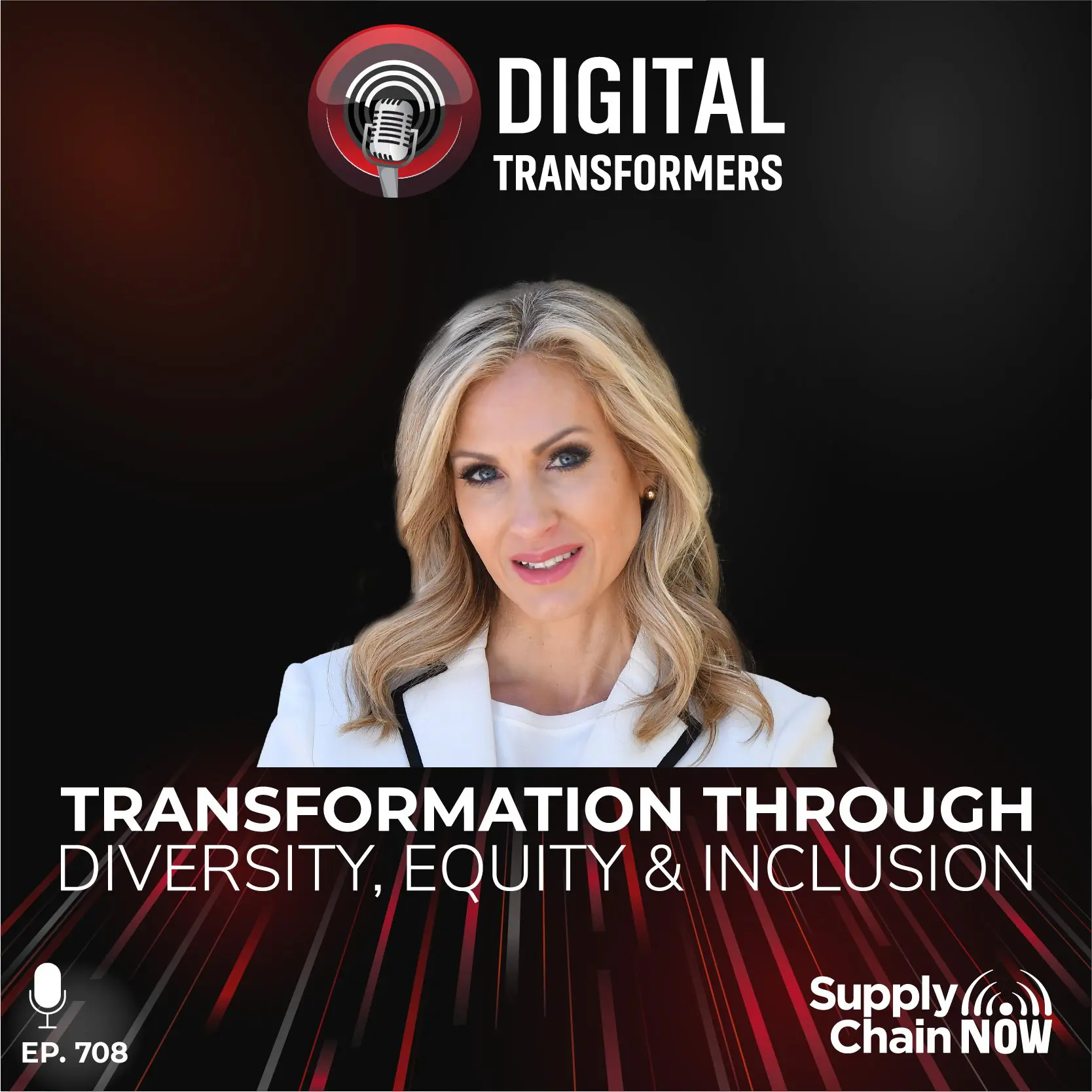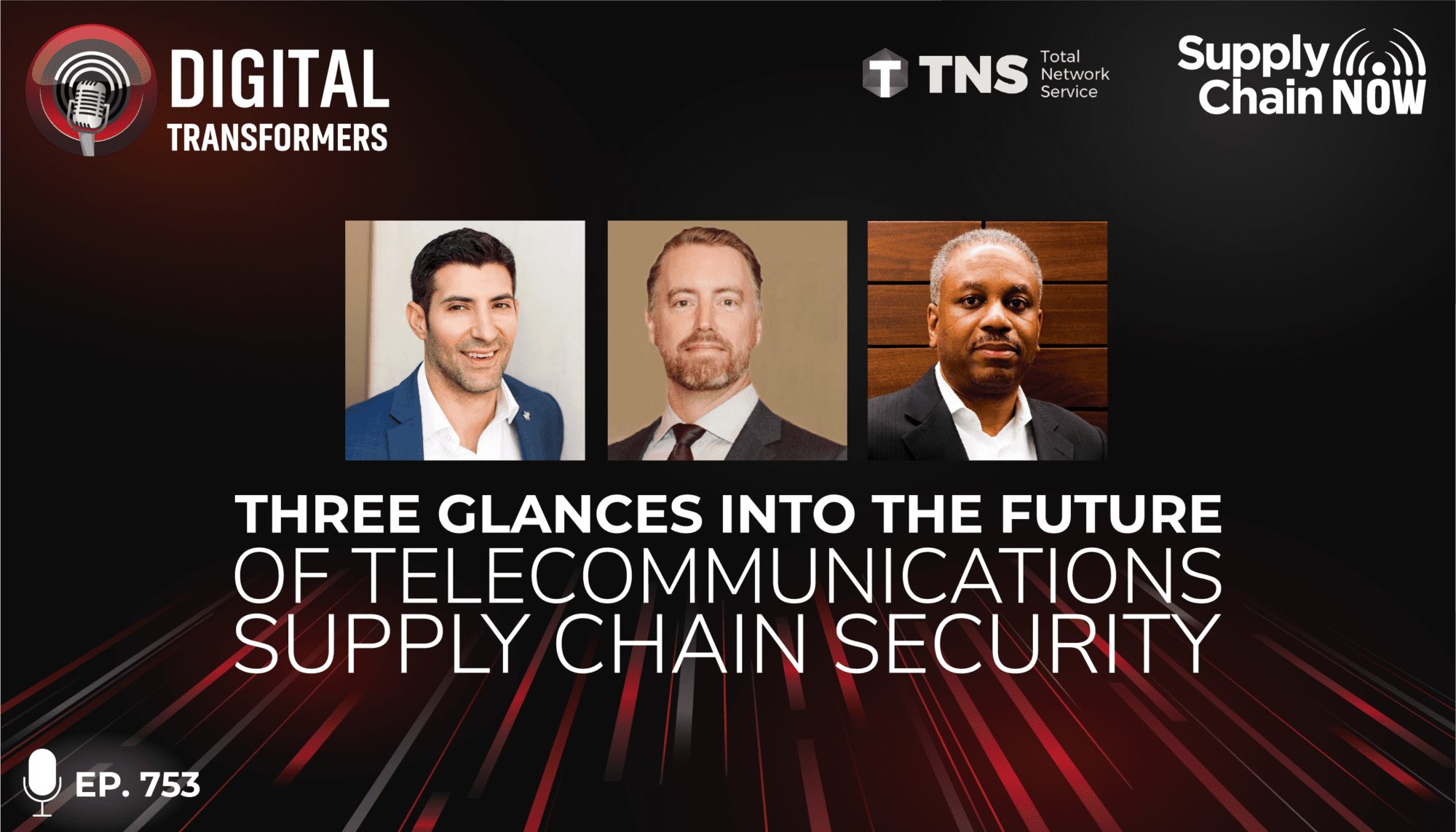
I go back to this Andreessen Horowitz quote from about 10 years ago, which is, 'software eats the world.' And software has absolutely eaten the telecommunications world for breakfast.
-Dustin McIntire
Episode Summary
Interlife™. The Internet of Space. eSIM. MEID.
No, these are not terms plucked from a science fiction novel. Instead, they’re the key concepts defining the future of security for the telecommunications supply chain. In this episode, host Kevin L. Jackson sits down with three technology pioneers, Dustin McIntire, Eric Adolphe and Joshua Pendrick, to discuss new approaches to establishing trust and provenance within a supply chain that is increasingly both digital and physical. As AI arrives at the edge, SIM cards become eSIM services, the Interlife overlays digital and physical spatial elements, and MEIDs acquire NFTs, both the private and public sector face exciting new prospects for tracking the entire lifecycle of products – with all the metadata they might need. Don’t miss this chance to peek into the future of enhanced connectivity – and figure out why Burger King might just be our best philosophical guide along the way.
Episode Transcript
Intro/Outro (00:03):
Welcome to Supply Chain Now, the voice of global supply chain. Supply Chain Now focuses on the best in the business for our worldwide audience, the people, the technologies, the best practices, and today’s critical issues, the challenges and opportunities. Stay tuned to hear from those making global business happen right here on Supply Chain Now.
Kevin L. Jackson (00:31):
Hello, everyone. This is Kevin L. Jackson, and welcome to Digital Transformers. Today is quite a special show in that we have three guests that are collaborating to make your cyber world safer. This show is a bit of a follow-up on a show that we had in January with Chris Poli from CommScope and Dave Stehlin, the CEO of the Telecommunications Industry Association. During that show, Dave and Chris explained the renewed focus on and the importance of securing the telecommunication supply chain. On today’s show, we have representatives from three companies that are doing just that. Eric Adolphe, the CEO of Forward Edge-AI, Josh Pendrick, CEO of Rypplzz, and Dustin McIntire, the Chief Technology Officer of COMSovereign Group. Welcome all. But before we meet our guests formally, let’s first thank our sponsor, Digital Names by Total Network Services. If you enjoy today’s conversation, be sure to find answer and subscribe to us wherever you get your podcasts. So, starting with Dustin, please introduce yourself, your company and how you’re protecting us in cyberspace.
Dustin McIntire (01:58):
Excellent. Thank you for inviting me today, Kevin. Really appreciate it. This is a quick introduction of myself. Again, my name is Dustin McIntire. I’m the CTO or Chief Technology Officer at a company called COMSovereign. So, in that role, that means I’m responsible for developing our products and solutions. So, who’s COMSovereign? COMSovereign is really a combined diverse set of companies in the wireless and related industries. That includes a US-based approach to a full service 5G equipment provider. COMSovereign provides products and solutions really across the ICT sector, including 4G, 5G, additional things like wireless transport infrastructure. But uniquely, we also do other things like airborne solutions like drones and aerostats to complement our communication side, but also additional things like power systems. And, I would say more pointing today’s conversation is that we brought in a new key piece called Mobile Edge Computing or MEC, which really amplifies or accelerates the 5G picture into the next realm which is the application solutions.
Dustin McIntire (02:59):
So, our company was built, you know, basically out of scratch from best of breed technology components. We’re only a couple of years old and those components really are both startup acquisition, sort of best of breed solutions, but also mature product companies, which are now being folded together to integrate into a common technology portfolio. And, what that does that that really brings together a harmony of leading edge, next generation capabilities, such as our L-eXtreme in-band full-duplex technologies, so it’s a radio technology, our silicon photonics piece, which relates to the fiber optic networks, but also our mature product companies that bring forward manufacturing capabilities and know-how. So, I think your question was, and what are we doing to protect ourselves from the cyber threats today? Well, I mean, just to take that conversation and play it back, I think most of the listeners will be very aware of the rip-and-replace project that’s ongoing with the US government.
Dustin McIntire (03:52):
And that was fundamentally a decision that was made that – a decision based around trust that certain global vendors are not to be considered trusted and pose threats to the integrity of our critical infrastructure. And, one of the fundamental principles of trust is transparency. And, today we base our trust really around where we built something. So, I trust this place, but I don’t trust this place. But in reality, there’s really no way to fully detangle that global supply chain. You know, implementing this type of decision-making is a little bit arbitrary because it depends on deciding what matters and what doesn’t matter as far as how we decide trust. But trust is, you know, kind of a qualitative metric, right? So, I trust but I don’t trust, I sort of trust, but that decision really could be boiled back into a quantitative measurement, quantitative data.
Dustin McIntire (04:43):
So, for example, I think we’re all familiar with the TIA’s working group for the Supply Chain 9001 Initiative. It’s really kind of re-looking at this and saying how do I go about my decision-making process for what is trustful. And, this community here in our conversation today will be a bit around what we as a group or a community are also contributing from a technology standpoint around how we see our capabilities playing forward to bring back the concept of trust that has a bit more fundamentals to it. How do we reach a technology solution to what has previously been more of an empirical decision? So, today’s conversation is really all around how we, as companies, are bringing our technology solutions forward to help drive that conversation.
Kevin L. Jackson (05:27):
Wow. That’s pretty cool. You guys are doing telecom and drones. So, Josh, tell us more about Rypplzz.
Josh Pendrick (05:37):
Yeah. Thank you for having us on, Kevin. Really appreciate it. It’s great to be here with you guys today. My name is Josh Pendrick. I’m the CEO of Rypplzz. We are a spatial computing company. Well, I guess, taking a step back, you know, the primary question for why Rypplzz has existed in its infancy was, you know, that we would think about it is, you know, how do we connect people and things more efficiently and securely. And, that’s really kind of the question that sort of started it all and along the way we ended up with some really cool technology. And so, what that cool technology is, you know, what we do, what we really do is we connect the digital and physical world in some really interesting and unique ways. We have a patented spatial computing system that essentially overlays a digital world on top of the physical world.
Josh Pendrick (06:27):
So, if you can kind of just imagine, even in the rooms that we’re all sitting in right now, this airspace around us being, you know, just imagine this invisible 3D grid of cubes of space, airspace existing, you know, and digital files being able to exist in these cubes of space. That’s basically what our system does. You know, it maps the space, it stores addresses of physical environment and allows the ability to program digital files or, you know, digital computing commands to these areas of space. And you can kind of think of it as, you know, in the same way you see invisible [inaudible] or we don’t see there’s invisible atoms in the air around us, you know, this matter. You know, we’ve kind of enabled this digital matter to exist. And, what you can do with it is, you know, all sorts of different applications. Of course, there’s a lot we’re going to be talking about today in terms of supply chain security, but, really, it’s just this new reality, environment reality that we’ve enabled and that’s what we call interlife, this world of a digital world overlaid on the physical and really Rypplzz is just the glue between this physical and digital space.
Kevin L. Jackson (07:41):
Wow. You know, and over the past year, I mean, we have all become fully digital. I mean, fully digital, fully virtual. And, it seems that you’re trying to merge us, right, to make that a normal thing.
Josh Pendrick (07:57):
You know, companies, you know, there’s all this talk about digital transformation. I know it’s a major topic of what you’re talking about on a regular basis, Kevin, and, you know, from our point of view the physical is not being incorporated into that discussion nearly enough because the reality is the world is physical internet of things as physical devices. And, so, you know, if you can kind of take this next layer, which in the way that we look at it’s going, not just the internet things but there’s internet of space, essentially that we enable and marry that in, you get a really nice holistic kind of landscape to take commerce and business and just general life applications to a whole new level.
Kevin L. Jackson (08:50):
Wow. That’s amazing. And, Eric, I mean, the name of your company, Forward Edge-AI, artificial intelligence, that could be second stares on [inaudible] beginning. So, tell us what does Forward Edge-AI do?
Eric Adolphe (09:09):
Yeah, Kevin, it scares me too. And, I would say every time I listened to Josh, I’m just like blown away. When I was in college, I actually studied physics. And, what Josh is doing is something called, well, when you look at space time, it’s called a cube universe, which is interesting. So, we’re moving in the direction that Einstein talked about.
Josh Pendrick (09:34):
That’s how we see it, too.
Eric Adolphe (09:34):
Anyway, I’m Eric Adolphe –
Kevin L. Jackson (09:36):
[Inaudible]
Eric Adolphe (09:37):
Yeah. Very cool, very cool. So, anyway, so I’m Eric Adolphe and I’m CEO and Co-Founder of Forward Edge-AI. And, as the name says, you know, we focus on bringing the artificial intelligence to the edge. That’s how we came up with a name, right. And, we think about – so we’re talking about supply chain, protecting supply chain. So, there’s a physical supply chain and there’s also software, right? So, as these edge devices become smarter, we have to start thinking about the software supply chain, and there’s not enough work that’s been done in that particular space.
Eric Adolphe (10:15):
So, as an example, it costs about $240,000 on average to deploy a new – and I’m going to use acronyms AI ML algorithms, right. About $240,000. So, a lot in industry had sort of, I don’t want to say cut corners but they’re leveraging what’s already existing like pre-trained models to shorten that life cycles development. The problem with that is we don’t have a good sense of the providence of the model, right, and the data that is being trained on. So, we did some fairly, you know, straightforward tests to demonstrate what we’re talking about. And, it’s very easy if we understand where those models came from, and a lot of times they come from the same places. We can very easily fool those algorithms to misclassify information, right? So, I can trick one of the algorithms to think that an alligator is a hammer, for example, right? This is called single pixel attack.
Eric Adolphe (11:21):
So, understanding and protecting the provenance of the models and the training data is going to be a huge problem as these devices become more and more intelligence. So, people now are focusing on worth, as we were talking about earlier, as Dustin mentioned, where things are manufactured. Well, we’ve got to start thinking about where software’s manufactured too, not just where it’s manufactured but where’s it going. You know, what’s the whole supply chain?
Eric Adolphe (11:50):
So, Forward Edge is tackling this and other problems. And, we’re specifically, and we kind of fell into this because we were developing technology to protect people against scams and disinformation and misinformation, that kind of thing. And then, in doing that, we had to be able to develop what’s called a real-time machine learner, which means, you know, de-centralized what’s happened locally, train the models, you know, back propagate it and then distribute it so that we’re protecting people’s privacy. And, we’re only lessening their data. We’re just sending the model updates. And from doing that, and Dustin, this is for you, you know, we’re doing this over 5G. So, it’s a federated, it’s a federation over 5G.
Eric Adolphe (12:41):
But in doing this, you know, we learned so many things about the threats that are out there and we’re like, oh, my god, we just can’t do this. We got to address some of these threats. And, we’re seeing a lot of this stuff. And, again, as I said, it’s related to the fact that people are using pre-trained models and frankly, this is an emerging field, but there is not a set of standards about how we audit AI and how do we audit models, right. It’s a nascent field. There’s not much in the way as far as the government has put out as far as how do we manage, you know, the provenance in the governance of AI. So, it’s really kind of like, you talk about being scared. It’s like Thunderdome out there, you know.
Kevin L. Jackson (13:30):
Well, one thing, I mean, you know, not the boot, I want to say that the work that you’re doing, you’re not just in a [inaudible] actually do a lot of this, did a lot of this under a grant from the National Science Foundation. Isn’t that correct?
Eric Adolphe (13:46):
Yeah. Yeah. And, thank you. You said thank you to your sponsors. I’m going to say thank you to my sponsor, which is National Science Foundation. So, we got an awesome, awesome grant. It’s called the Small Business Innovation Research Grant from the National Science Foundation that enabled us to launch and tackle this problem. And, they understand the challenge that we’re undertaking here. In fact, I think the National Science Foundation is going to be in a major way involved in developing how do we do governance of AI. So, yeah, big thanks to the National Science Foundation.
Kevin L. Jackson (14:24):
Okay, great. Now, each of your companies have been collaborating with our series sponsor, TNS, on enhancing the security of mobile devices, including the smartphones that have sort of become appendages to us all. So, Josh, can you tell us a bit about the software you’ve been developing on the TNS Blockchain infrastructure? I think it’s the MEID, right?
Josh Pendrick (14:51):
Yeah, absolutely, Kevin. Absolutely. Yeah. So, we’ve been essentially really working very closely with TNS. You could kind of say we’re attached at the hip and particularly focused on this MEID product and project. So, as probably most of the folks, the listeners, you know, and this audience will be aware, but just in case we’ll kind of take a step back and say, you know. So, every smartphone device has essentially a manufacturer equipment identification number, which is distributed by an organization that we’ve referenced a little bit earlier, I think, the TIA, Telecommunication Industry Association. And, basically it has, you know, works like a serial number for the device. So, every telecommunication device has a MEID number, and essentially in partnership with TNS, you know, we have come up with is the concept of attaching that MEID number on a blockchain, you know, with a non-fungible token that could represent that physical asset or even a digital asset.
Josh Pendrick (16:04):
And then, you can add data, you know, to these fields whether it be the hardware or software [inaudible] of materials or other types of data, like location data, which our platform provides. And, once you do that you can do all sorts of interesting things to support with the supply chain security matters for the industry, you know, first and foremost, that enhances an organization’s visibility and tracking for even just where this device has been, where it was manufactured, where the software was manufactured, component provenance, and also just internal change management process that can be layered into that. Then, you add the geolocation, extra geolocation component, you know, that our platform is providing to the stack and now you can do things well. So, if you’re adding time tag geolocation data, right, and capabilities for controlling different functions with the location. So, an organization could do, for example, is disable access to a device or access to a certain software or content based on the location of that device and layered in with other rules, you know, certain permissions or whatever, but you can really do some really interesting things.
Kevin L. Jackson (17:34):
Wow. I mean, you are really merging that physical and virtual. So, Dustin, your team actually has taken this security to a higher level with known, I guess, as the electronic SIM card. Can you explain to us how the eSIM and the MEID could actually work together?
Dustin McIntire (17:56):
Sure. I think before I get into the depth of that, maybe I’ll just expound a little bit from Eric’s conversation earlier about the activity of the software realm, because the contractor was digitization and what does that mean to us. And, I think from my perspective, the way I wanted to describe this is digitization to me has been the transformation from a hardware-centric world to a software-centric world. So, myself as a telecoms guy, I looked back in time and I say most of what I did in the past was specialized equipment for singular purpose. It was a radio to do function X connected to something else through another dedicated piece of hardware. That has completely flipped around. So, we do software defined everything today for software-defined radios, which means I put software on a piece of hardware to create the wave forms to transmit over the air, software defined networking, which means I basically put a computer out in the world and I tell it all the different fancy protocols has to run.
Dustin McIntire (18:54):
Essentially everything has been transformed into a software problem. And, I think it’s very important to sort of translate that beyond our original supply chain question, which was, how do I verify hardware? How do I know where my components came from, which is sort of the fundamental layer of understanding origin. But as we take this forward, it is very important. It’s vital for these conversations we get into eSIM and the rest of the authentication and trustability to be able to not only say what was on this at the day it was born, but what has been on it ever since it was born until the day it dies. Basically the entire life cycle of a product has to be known because if I have some weak points somewhere along that trajectory and I’m able to find a way to get in there, I’ve sort of lost the battle. I no longer can fully believe that I have confidence that I own this device anymore. And so –
Kevin L. Jackson (19:45):
You’re really talking about the provenance of not just your hardware, but the software.
Dustin McIntire (19:51):
Right, exactly. Because, again, it is. And I like to go back to this Andreessen Horowitz quote from about 10 years ago, which is software eats the world. And software has absolutely eaten the telecommunications normal for breakfast. [Inaudible] is a software. It is almost completely a software-based world taking everything that the cloud did over the past decade and pushing it out to the edge of the network and saying we’re going to call this telecommunications. And so, everything that we do now as a company from my perspective is based around that fundamental concept that we’re turning into a software company. And so, all of those principles and practices, again, kind of going back to not only understanding who built the software, but where did it come from. How do I assert that everything that went into that software is something that’s known to me. You think about the solar [inaudible] phenomenon. That was basically a side channel from a third party coming in and destroying essentially the provenance of the product itself.
Dustin McIntire (20:45):
So, I guess take this back to the conversation at hand today, which is starting points of technology that we can baseline everything we’re doing from. So, we started with this discussion of the MEIDs and, again, kind of taking it into common conversations today and this device in my hand right here and the eSIM technology. So, today I go buy my phone at Best Buy or whoever it may be. And then, Verizon, let’s say I’m a Verizon subscriber. I get a SIM card, that little funny piece of plastic that I stick in the phone, and says now they know who I am because I put this piece of plastic in there. And so, I have this trust relationship inherent to me and my provider because I gave it this little piece of hardware.
Dustin McIntire (21:24):
Well, that doesn’t really scale in the telecommunications world because I can’t go putting little chips and everything to just sort of set my root of trust. So, we’ve created this concept of eSIM, which is basically an online provisioning of that trust relationship through doing something that I have to physically do. So, whether that’s scanning a QR code or a two-factor, we all have these two-factor authenticators on our phones now. How do I sort of establish myself, use that as the baseline to create this connection between two endpoints to start building the trust relationship. And so, we’ve been using this eSIM concept to sort of bootstrap the whole idea to be able to now take that as the starting point, the nexus or genesis for building out this chain of trust, which then, as Josh has mentioned, it kind of builds this ledger, right? How do you create a historical record from cradle to grave of everything that’s ever happened that I find interesting. So, all this metadata the piles on top of the story, I have to have that, and I have to be able to assert that it’s true. So, how do I create the story of, I know the information but you have to believe me or we don’t have a trust relationship.
Dustin McIntire (22:27):
So, all of this kind of [inaudible] a back to how I facilitate that with the technological components that I have at my disposal today, as well as those ones that we can develop with this group of teams to be able to create an ecosystem, if you want to think of that, as an ecosystem of trust building so that all of the equipment [inaudible] as a solutions company can go out into the world and say, through transparency of everything we’ve done in the past, you should be able to see that what we have is a trustful product. So, that’s kind of the cornerstone of everything we’re building at this point.
Kevin L. Jackson (22:59):
Wow. That’s amazing. You’re taking the physical aspects of trust and basically eliminated them so that you can do everything virtually and still have trust and then putting the record of what has been done with either hardware or software on this immutable blockchain so that you have not only the state or the status of that item now but what it’s been for forever in the past.
Dustin McIntire (23:37):
Exactly. I mean, I think of it as, in an engineering company, we have a process to build a product. And through that process, there are things like ECOs or engineering change orders, which mean in the process, we have agreed to make this change and therefore the process is being augmented. Well, that’s fine to give me the idea of being able to establish a competence level that what I will build this is trustable. But how do I know each and every thing that has come out the other end in the numerous permutations of things that may have come down the road with all the software changes, et cetera? How do I continue that story from an individual product level? That’s where we have to build all this technology in order for us to facilitate the, how do I know from beginning to end that everything has been transacted on this device is something I can believe.
Kevin L. Jackson (24:25):
Wow. That’s huge. So, Eric, I know Forward Edge-AI is taking all of these ideas and they’re not concepts, you’re actually creating products and you’re going to market and actually delivering to customers. So, how are you actually taking these advanced security solutions in the marketplace? What industry verticals or what customers can you share with us?
Eric Adolphe (24:54):
Yeah. So, before I do that, so Dustin said some pretty cool things and is very interesting because as I listened to all the speakers today, it just reinforces how digital transformation means different things to everybody, depending on their industry, their vertical and their perspectives. And, for me, digital transformation is really, you know, business transformation that’s enabled by digitalization. So that digital moniker is a bit of a misnomer because the essence of digital transformation is changing business process enabled or forced by digital technologies or digitalization technologies. And, one example of this is the convergence of what was called information technology and operational technology. That OT is typically like a control system. It may be a SCADA or an IOT device. I think as smartphones as like the ultimate OT device. I mean, people today are using their smartphones to control their home security. They’re using their smartphone for medical device interface. They’re using their – for all kinds of things, so.
Kevin L. Jackson (26:12):
Yeah, that’s on a side. I was in a hotel out in California and instead of using the remote control for the television, you had to use your smartphone, you scan the QR code, and then your smartphone became the control for the television.
Eric Adolphe (26:30):
Yeah. And, in fact, in some hotels, now you can actually use your smartphone to actually open your door. No more keys. So, the verticals that got me really, really excited, the transportation, so-called smart cities, you know mobility-related verticals, federal, state and local healthcare, financial. I know you said limited to two, but those are –
Kevin L. Jackson (26:58):
No. Tell me more. Tell me more.
Eric Adolphe (27:02):
Those are the big four for me. And, you know, I’m really interested to see where this goes as far as, particularly 5G with where this goes through as far as like self-driving vehicles, intelligent transportation systems, all that applies. But I think the bottom line is with all of these verticals within the OT, operational technology domain, this creates the need for more better governance due to cyber security concerns. So, even what Dustin was talking about earlier, you know, we’re doing things in a new way because of digitalization, right?
Eric Adolphe (27:38):
So, now if I have the ability to open my door with my smartphone, what kind of problems does that create? Right? Somebody will be able to open my door, you know. So, we have to start thinking about these things in a different way, and, you know, the customers themselves are going to need the governance and a provenance strategy that leverage digital technology. And that’s where I think a lot of this comes in, the eSIM and TNS, because TNS for us is giving us the ability to do that provenance. Right? And, I think eSIM is going to be just another, you know, empowering tool that’s going to enables us to do that kind of provenance as well and secure this future. So, very excited about that. And, yes, Kevin, we are deploying these technologies just a quick plug.
Eric Adolphe (28:36):
Our first product is Gabriel, which is protecting users against vishing and smishing scams, and we’re focusing on these scams that are targeting vulnerable populations. But we’ve got a second product that’s in the hopper. It’s called Blaze. And, essentially what Blaze is, it’s a handheld Android device that is able to detect COVID, E. Coli, MRSA, all kinds of pathogens on your keyboard, doorknob, et cetera. So, we envision a world where you’ll have this smartphone on your belt or your purse and you’ll be able to pull it out, scan a doorknob, see if there’s something bad on it before you touch it, or restaurant or cruise liner. So, that’s our second product we’re going to be deploying. So, all of this is linked to everything we’re talking about here today. And, this digitalization is, it’s a brand new world. And, you know, and that transformation element is going to require, you know, leadership at the top, the CEOs to embrace it, to champion it in order for it to succeed because it’s going to be a cultural change as well.
Kevin L. Jackson (29:51):
Wow. Yeah, absolutely. And, Dustin, I mean, I know you call yourself a telecommunications company, but you have so many components and you’re even a manufacturer. I mean, you’re not, you know, my grandfather’s telco. So, what about your customers? Who are your customers you’re targeting with this and, what does it mean to them?
Dustin McIntire (30:19):
Well, it’s an interesting question because if you would ask me that a year ago, I would’ve had one answer and now I would say I have potentially another answer. So, obviously, the drive behind this originally was a public conversation brought about by the US government making the observation that there were folks out there doing things that they claim to be nefarious, which then became a political argument and so on and so on. And so, you know, we have customers in many different spaces. One of them obviously is in the federal space, US government entities, such as Homeland Defense, public and, or excuse me, first responders in police and fire services. So, a lot of them are based in government funding that would require us to obviously comply with all of the priorities coming out of both Congress and the White House related to supply chain management.
Dustin McIntire (31:16):
Last year and this year still, we also saw the additional edict about certain numbers of UAS, that is what we call drones, no longer being allowed for government use as well. And so, we started to see that this trust issue propagates well beyond what we thought of originally as just a communication sector issue to covering so many different things. And so, I think fundamentally, we have to think of it as not just a 5G thing or not just about communications but it really is absolutely comprehensive to everything we do going forward. Because to be honest, again, everything’s sort of related, it’s all a software world, everything’s talking to everything. And so, we have to think of this holistically as a comprehensive solution towards all of the things we’re doing. So, to take it back again to our customers, the public sector, of course, has a very high priority to deal with these as, you know, the face of the government, but, you know, equivalently, I would say now, again, coming back to this year, moving forward is that it has begun to have traction with commercial space.
Dustin McIntire (32:23):
So, if you look at a lot of enterprise-type customers, especially those in environments like mining and gas and some of the others, where we saw what happens when things get hacked, gas pipelines go down, bad things happen. How do we, as a company, help to promote the fact that even the commercial side folks should be very invested in this as a solution long term? So, I think we have seen that that is becoming a priority, not only from a government mandate, but really being driven from our commercial side customers who are seeing the liability of not addressing this now. And, we as a company, having invested our time effort, blood, sweat, and tears to be a leader here believe that to be a strong differentiator for us in the future. And I think a compelling thing for us as a nation to be a technology leader in, because that is, I think, a clear value that we as Americans have and I think that the world we’re appreciate.
Kevin L. Jackson (33:17):
Wow. Yeah, I really appreciate it. I mean, but, Josh, your company, you said it not me, is a geospatial engineering company. So, how does that fit in with all of this telecommunication security?
Josh Pendrick (33:31):
Well, I mean, it kind of goes back to a little bit of what I was just saying earlier, right? So, specifically with – so we’re basically associating digital files to physical space, right? And so, what we really do with this, we call it an environment operating system or spatial operating system. But what we’re really doing is capturing kind of the spatial flow of the movement of digital assets or physical assets through these locations and capturing that in, you know, in a ledger, basically capturing a ledger of activity at locations.
Josh Pendrick (34:10):
And so, when you add that data into, you know, if the MEID application we’re talking about, then you’re going to be able to do things like verify where this device was, just have this ability of knowing, you know, its movement over time, being able to grant permissions or deny permissions based on a location. And so, that just really, it just gives organizations I guess a lot more control into being able to kind of, not just manually make these decisions, but to set up systems that can be automated based on business rules and such to be able to create, check for flags and vulnerabilities and take actions based on certain conditions and region.
Kevin L. Jackson (34:58):
Sure. That reminds me of a saying I heard long ago, everything has many places in times, so you’re just blinking all of those places in time to everything.
Josh Pendrick (35:12):
Well, yeah. And, here’s the other thing I think that’s really unique to specifically Rypplzz, right, so for us, ’cause there’s different types of, you know, companies focused on certain supply chain applications, you know, even leverage in blockchain and such, but they’re more siloed to a specific focus use case. And, going back to what I said at the beginning where, you know, Rypplzz’s reasons for existence was to essentially create, you know, how do we connect things, how do we make things more efficient, connect people more, you know people and things more efficiently and securely as well. And so, for us, we’re never really looking at a specific business use case or application for industry. For us, it was more about how do we make the human experience more optimal. How do we enhance the flow of life? And that involves kind of mobility amongst different applications. So, we’ve built this system so that it can integrate across any applications to plug into this so that there was just the best, well, I guess, to get just real simplified with it, you know, data in, data out, the best contextual data to produce the most optimal outcomes and efficient outcomes.
Kevin L. Jackson (36:26):
Wow. That’s just really interesting. It’s sort of a different view of all of these technologies and industries. You’re saying that they all sort of have to work in the same light space. So, this is –
Josh Pendrick (36:42):
Yeah. [Inaudible] have to. In order to produce the best outcome, you’re going to have a better just overall human experience, a more efficient, better resource management, the more that we can have this stuff streamlined. But the only way you can do that is if you have things like where you are able to maintain privacy and security and things, you know, these things that Eric was talking about and Dustin we’re talking about. Otherwise, you know, you won’t even really have a system to do it or you won’t be able to do those types of things. So, this is a major step forward in being able to actually, you know, make that a reality.
Kevin L. Jackson (37:17):
So, security, the underlying security of any system that’s operating in today’s modern world has to be assured. And it’s great to see that these technologies are coming together. Unfortunately, we’re running out of time, but before we wind up, I’d like each of you to give us sort of a glimpse of your company’s future and our future and how the audience members could really reach out to you. Starting with Dustin, what’s next for COMSovereign?
Dustin McIntire (37:50):
Well, it’s secret. I can’t tell you.
Kevin L. Jackson (37:56):
Okay.
Dustin McIntire (37:56):
But if I could tell you, here’s what I would say. You know, we’ve been investing heavily as have many, right. 5G is the word of the year, I could almost think of it as. A lot of folks now kind of seeing it as real. It went from planning, talking about to it is and slowly manifesting into the tip of the spear. It is now we look at the major service providers having basic services. But 5G in the long run, [inaudible] remember was Burger King, it’s basically your way, right? So, this is a network that’s built your way. So, it’s designed around being customized to the individual essentially. We use words like slicing, which basically means I’m customizing the connections between these things to suit exactly what you need. In addition, as I mentioned, this edge compute piece, which is being built behind the scenes to facilitate and enhance the applications, because, you know, from my view, 5G is an interesting thing that allows us to move things from one place to another. But, in reality, it doesn’t do anything. It’s actually needs something else behind it to be the doer.
Dustin McIntire (39:00):
We think about how the cloud has absolutely revolutionized everything we do. My handset over here is filled with apps to do next to nothing, except communicate with some cloud server somewhere in a room full of computers. You know, that has been an absolute shift to how everything works today. Well, 5G is going to rip that up and take all the pieces and spread them out all over the world. And so, from my standpoint, we, as COMSovereign, are really looking at those use cases where you’re taking the network and bringing it to the customer, right? So, traditionally, I had to wait for my service provider to show up and put a tower near me for my network to really be something I can use. And, if the connection wasn’t good enough, too bad I had to move.
Dustin McIntire (39:41):
Well, now that’s not the problem. I actually can take the network and bring it with me. If I’m out in the middle of, you know, Sub-Saharan Africa, I can bring a network with me. I can create my own connectivity solution, call them private networks. I can either operate them completely on my own. I can create satellite connectivity through things like Starlink and some of those amazing LEO satellite constellations now being deployed to create this connection fabric all over the world. So, this ubiquitous connectivity with the ability to carry my solution with me is an absolute game changer for how 5G is going to transform things. Once you aggregate that and bring it together with this edge compute to be able to bring the applications, both temporally and spatially, wherever I need them to follow what I have to be doing, that is together going to be a, I won’t say, you know, the killer app, because to me the killer app for 5G is that there is no killer app. Everybody gets their own. You know, you get your stuff your way no matter where you are. And so, from my standpoint, that is where we are positioning ourselves into really those key focal areas for where I believe the 5G and MEC technology are going to take us.
Kevin L. Jackson (40:46):
Wow. That’s amazing. And, Eric, where is Forward Edge taking artificial intelligence?
Eric Adolphe (40:54):
Yeah. So, and more like where’s artificial intelligence has taken us. We’re not [inaudible]. But with regards to the MEID, I could say this. I think that is like, and, Kevin, you and I talked about it before, this is the final bit that we needed that brings that governance piece to every smartphone in a way that really doesn’t take away from introducing innovative new features and capabilities. You think about how, you know, some of the manufacturers like Apple, for example, really locked down the phone’s capabilities and it’s hard to innovate because of their policies. Well, if we give, just like Dustin was saying, if we let people do it their way and sort of like, you know, Burger King model, I think we’re going to see a lot of innovation coming out of the community. So, I’m excited and I think, I guess I just said this is the final piece that’s kind of needed. So, I’m looking forward to partnering with you guys and bringing our product to market.
Kevin L. Jackson (41:56):
Great. Thank you. And, Josh, what’s next for Rypplzz? I love the name by the way.
Josh Pendrick (42:03):
Thank you. Yeah. Flow like water. You know, we got a busy roadmap ahead just, you know, with our MEID solution and, you know, working with you fine gentlemen. I’m really excited about that. So, that’s a big, big part of what’s next to come and, you know, even, it seems, you know, some of the things that Eric has on his side of the fence. You know, we’ll be pretty busy with some of that, you know, for the next several months and that’s fantastic. And then, you know, outside of this kind of whole space of everything we’ve been talking about today in the world of telecommunication and supply chain security, we actually have quite a bit going on and I guess it feels like we’re living a double life, but we have a quite a bit going on in the world of entertainment as well.
Josh Pendrick (42:54):
It’s particularly the world of location-based entertainment. So, you think places, you know, physical venues that people go to, stadiums, entertainment districts, attractions, things like that, where high foot traffic for recreational purposes. You know, we’re going to be deploying over several of those types of venues over the next six to 12 months. And, we also have a consumer-based product that’s actually a new kind of social media platform entangling the digital and physical world. And that will be actually launching pretty soon. So, you guys will be able to see that coming out here in the next several months.
Kevin L. Jackson (43:34):
Wow. Josh, you got to take some COMSovereign’s networks into those places. So, tell me, how can –
Josh Pendrick (43:41):
Actually, you know, Dustin, we got to talk offline. I was already [inaudible]. We got to talk software to find radios, so.
Dustin McIntire (43:48):
All right. Good. Yeah.
Kevin L. Jackson (43:50):
So, Josh, as we wind up, Josh, how could our audience reach out to you or Rypplzz?
Josh Pendrick (43:56):
Yeah, sure. So, well, rypplzz.com is probably the easiest way to go there. You can just put a question on our site, or reach out –
Kevin L. Jackson (44:03):
You got to spell it.
Josh Pendrick (44:03):
R-Y-P-P-L-Z-Z dot com. I trust Kevin will provide the link as well in the show notes. And then, also you can find me on either Twitter, Instagram, or LinkedIn, just @JoshPendrick.
Kevin L. Jackson (44:22):
Great. We will have all this information in the notes. And, Eric, how could the audience reach out to you and Forward Edge-AI?
Eric Adolphe (44:29):
Yeah. So, if you have a can with a string attached to it, you can reach me. So, forwardedge-ai.com is our website. And you could hit me up on LinkedIn, Eric Adolphe at LinkedIn. Hit me up on LinkedIn.
Kevin L. Jackson (44:48):
All right, great. And COMSovereign. Dustin, how can people reach out to you and COMSovereign?
Dustin McIntire (44:55):
You can find me right there. I think you can see that. There we go. Yeah. So, that’s how you find me. So, we’re [inaudible]. The website’s great. We’re out at a lot of trade shows, so finally back in gear with a lot of the major trade shows back in person. We’ll be at Mobile World Congress here in about three weeks. So, anybody who wants to hook up then, that’d be great. But other than that, you can always reach out to me. I’ll make sure that Kevin’s got my contact.
Kevin L. Jackson (45:19):
Well, great. Yeah. And, we’ll put all this information in the show notes. So, thank you all for protecting our future. We are out of time. So, I would like to invite everyone to check out the wide variety of industry thought leadership at supplychainnow.com. You can find us and subscribe wherever you get your podcasts. So, on behalf of the entire team here at Supply Chain Now, this is Kevin L. Jackson wishing all of our listeners a bright and transformational future. We’ll see you next time on Digital Transformers.
Intro/Outro (46:00):
Thanks for being a part of our Supply Chain Now Community. Check out all of our programming at supplychainnow.com and make sure you subscribe to Supply Chain Now anywhere you listen to podcasts and follow us on Facebook, LinkedIn, Twitter, and Instagram. See you next time on Supply Chain Now.
Featured Guests

Dustin McIntire developed his career over 25 years building end-to-end solutions for the consumer electronics, wireless communications, and Internet of Things markets. As a Chief Technologist and Systems Architect, Dr. McIntire has a proven track record of successfully leading projects and teams from early stage concepts through high volume production. His broad technical knowledge is a result of both a comprehensive education and an extensive career working in the computer architecture, low power electronics, embedded software, and wireless communications systems fields. Dr. McIntire’s achievements include both commercial product development and core research accolades. Examples of these include co-founding a successful IoT cloud-based Platform-as-a-Service (PaaS) company hosting hundreds of thousands of devices for numerous Fortune 500 companies and developing a highly scalable edge computing system to perform distributed target tracking via multimodal sensing assets. Notable product launches include the first connected residential garage door opener, residential oven, and smart home monitoring products sold in the United States. In addition, Dr. McIntire has authored numerous patents, peer reviewed journal articles, and conference papers covering diverse topic areas. As a leader Dr. McIntire has managed cross domain engineering teams starting in an early stage startup and transformed these into a full size, agility driven division. Connect with Dustin on LinkedIn.
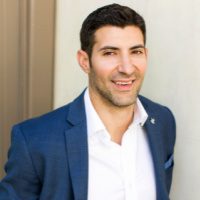
Josh Pendrick is a seasoned entrepreneur and business leader with a track record of driving transformational results for Fortune 500 organizations and startups. He is currently the CEO of Rypplzz and advises startups. Prior to Rypplzz, Josh founded and ran multiple successful companies. Over his career, he served as a marketing executive for global brands including Atari and Evite, ran a marketing agency, and advised Fortune 500 executives on digital strategy when he was at Salesforce. Connect with Josh on LinkedIn.
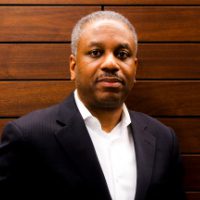
Eric Adolphe is a technology-savvy executive with over thirty years of success building high-growth firms focused on mission impact, revenue, and margin attainment, primarily in the national security sector. Eric’s expertise covers mega-project scale, high-availability and highly performant software for a range of customers and use cases. Eric is a National Capital Business Ethics Award winner, Federal Computer Week (FCW)/Fed100 awardee, Service to the Citizens awardee, National Inventor’s Hall of Fame Honoree, winner of one of NASA’s highest civilian honors, and the first African American Small Business Innovative Research (SBIR) Tibbett’s award winner. Forward Edge-AI, Inc., is Eric’s new startup focused on AI for the benefit of humanity. Connect with Eric on LinkedIn.
Hosts
Additional Links & Resources
COMSovereign and TNS Advance Wireless Infrastructure Security Utilizing the Blockchain for Mobile Electronic Device Verification
